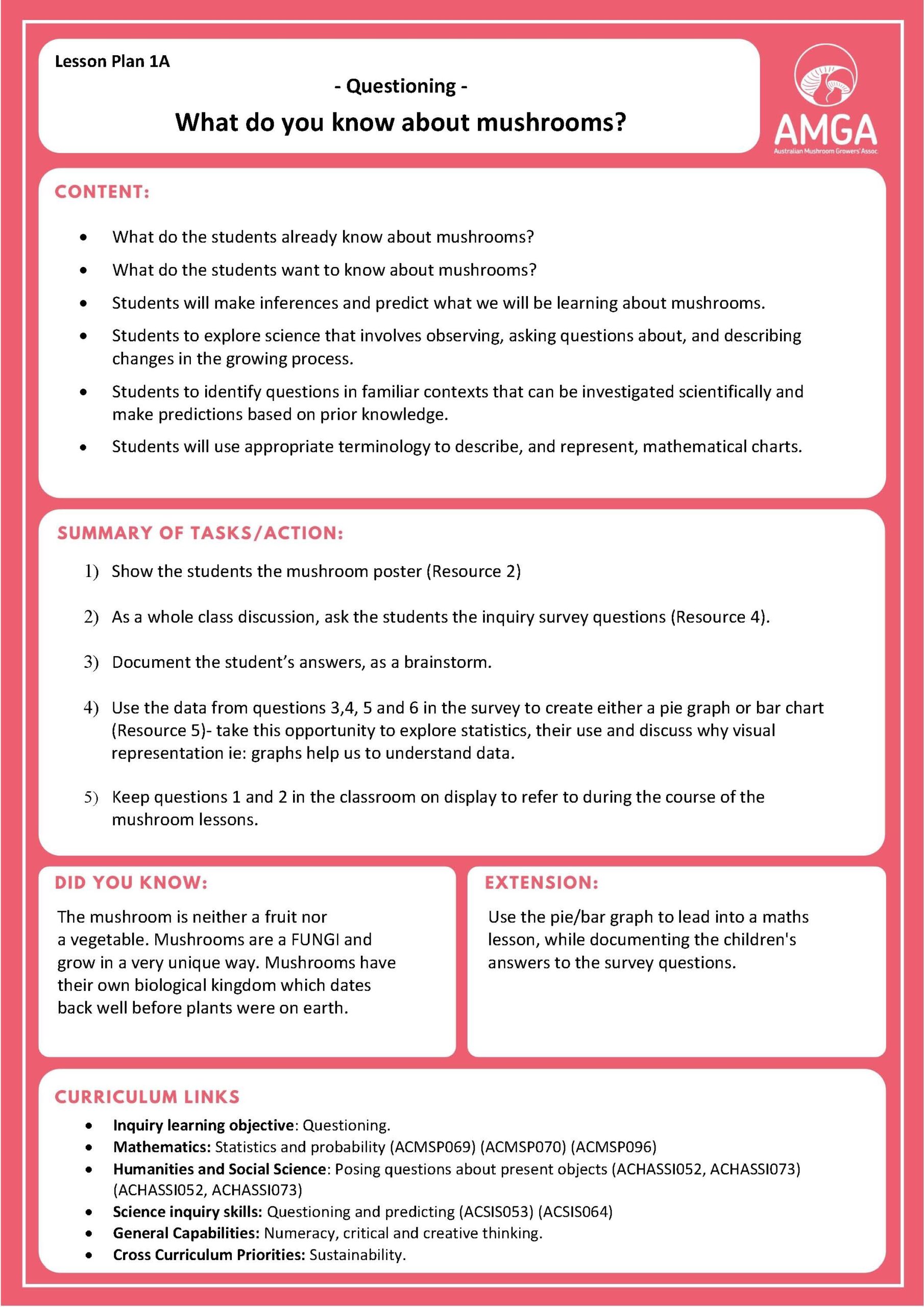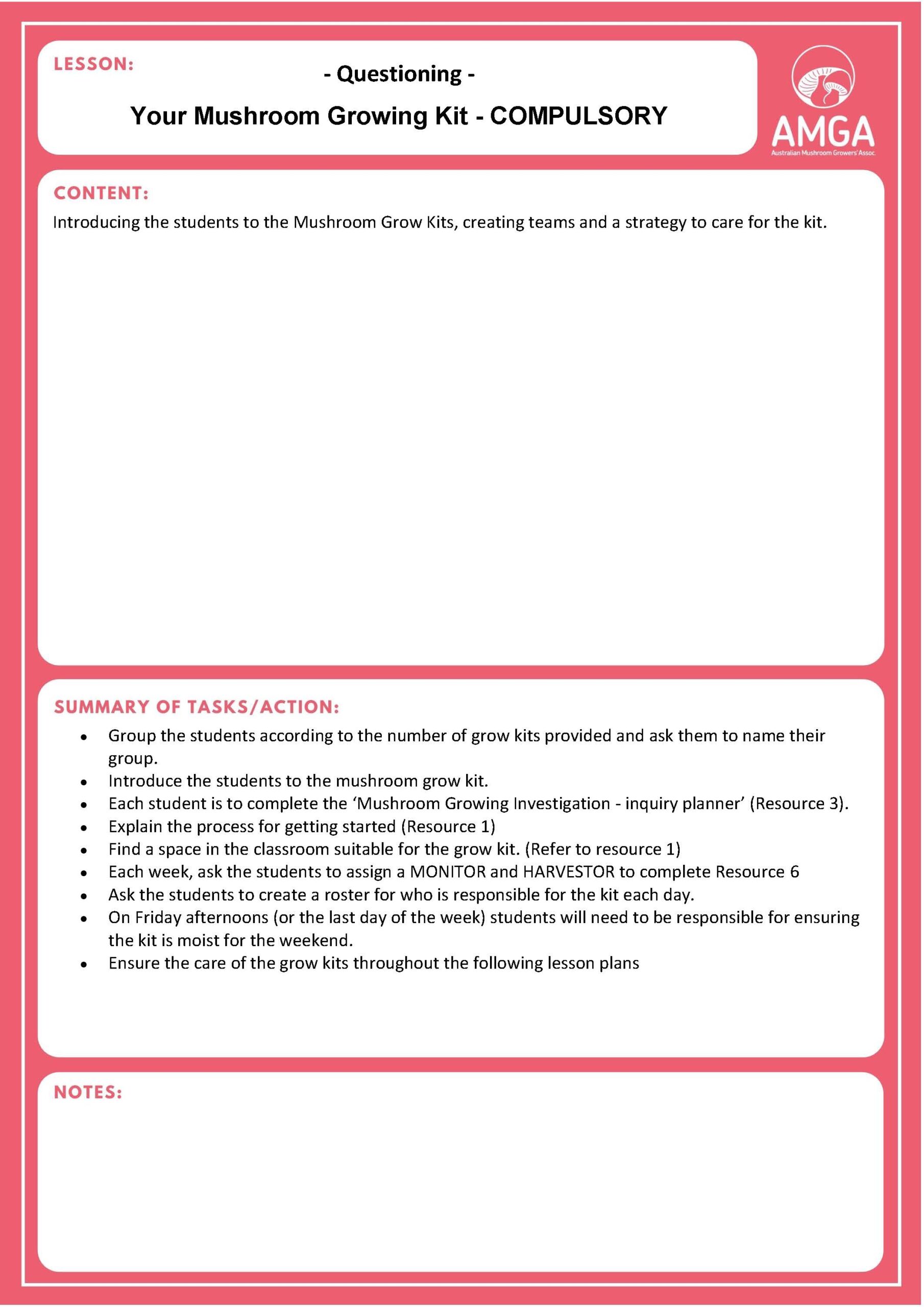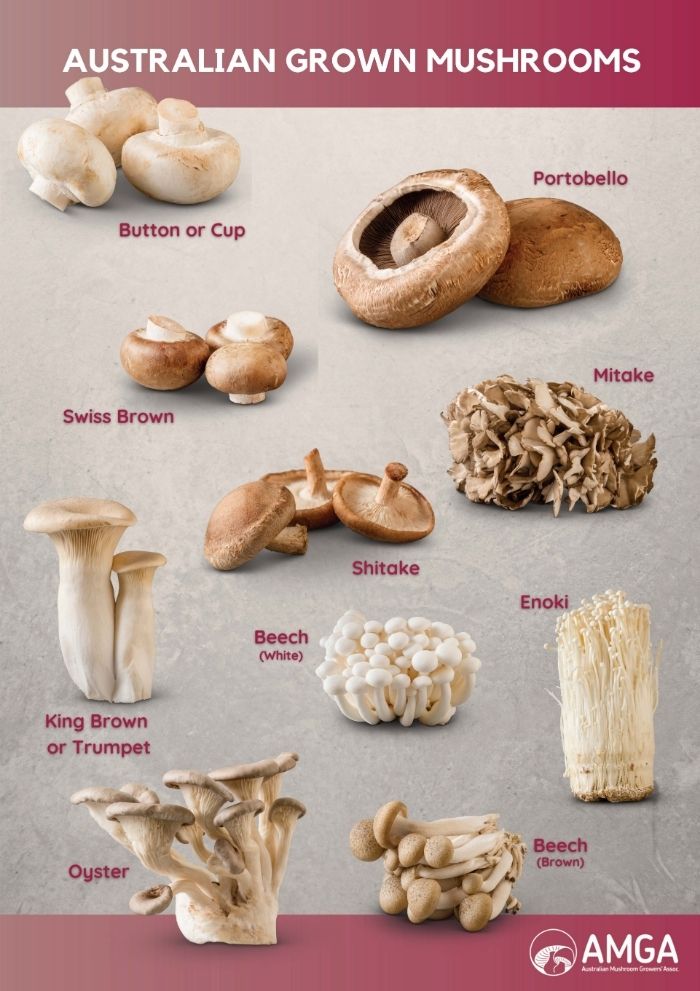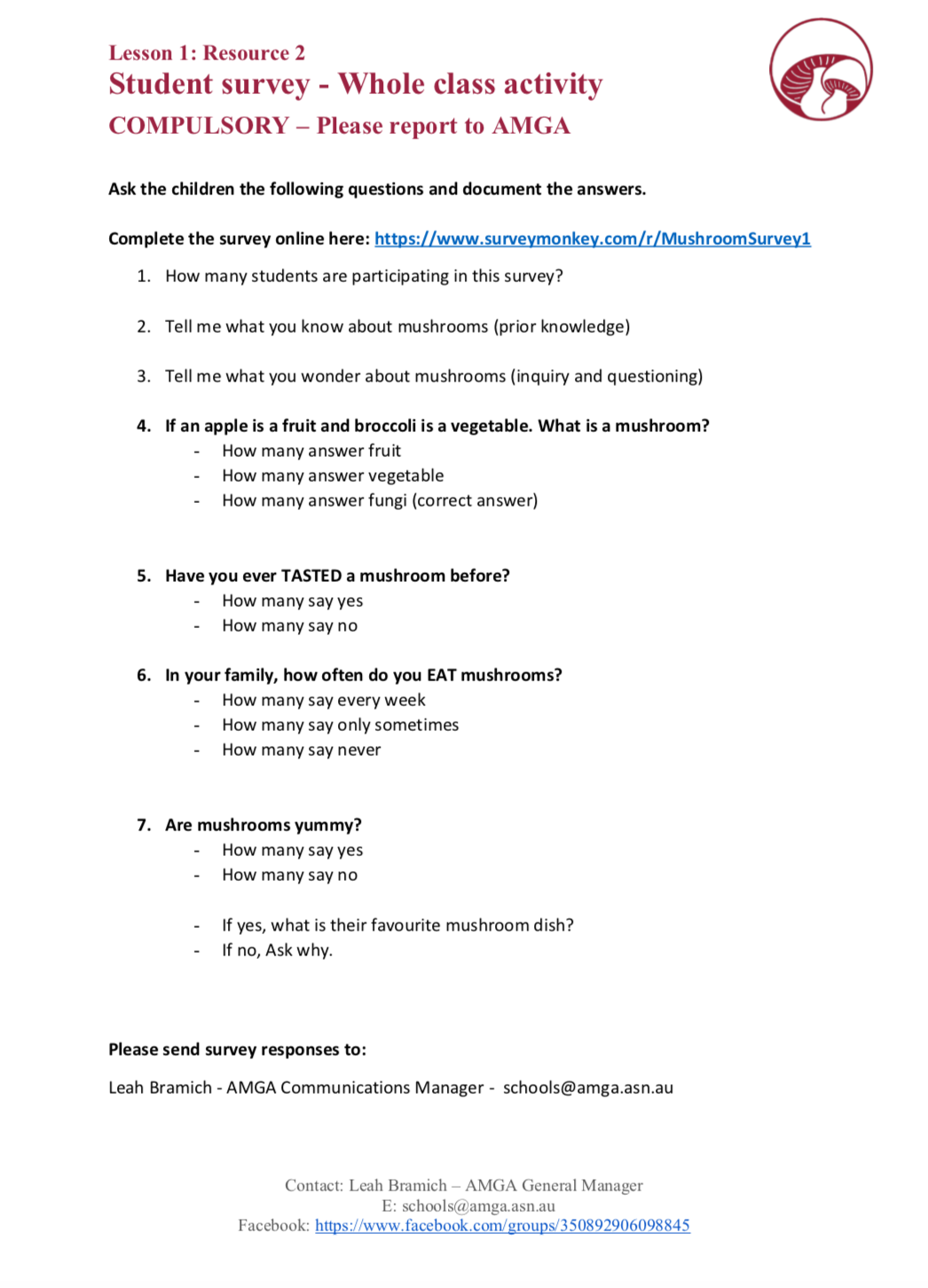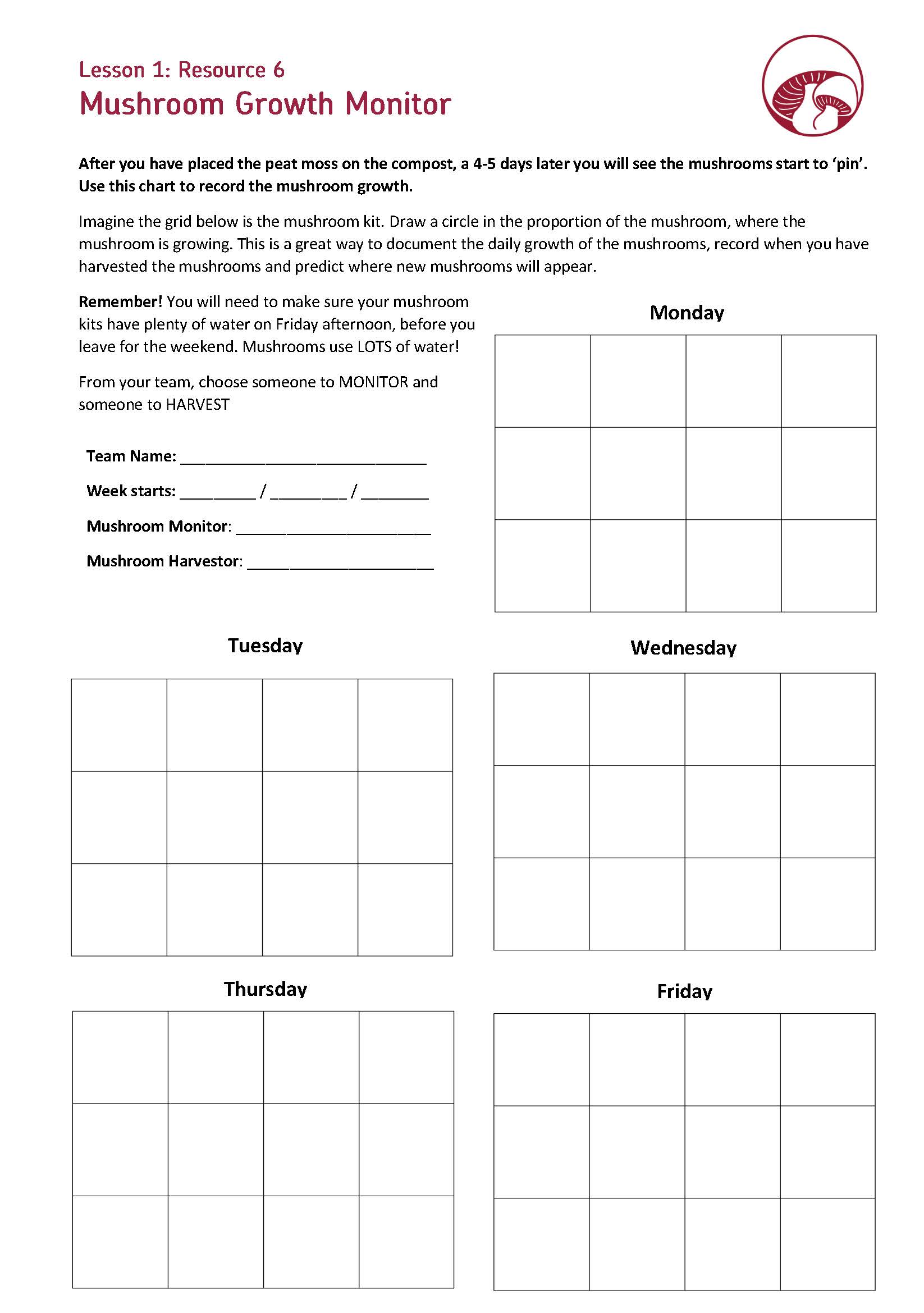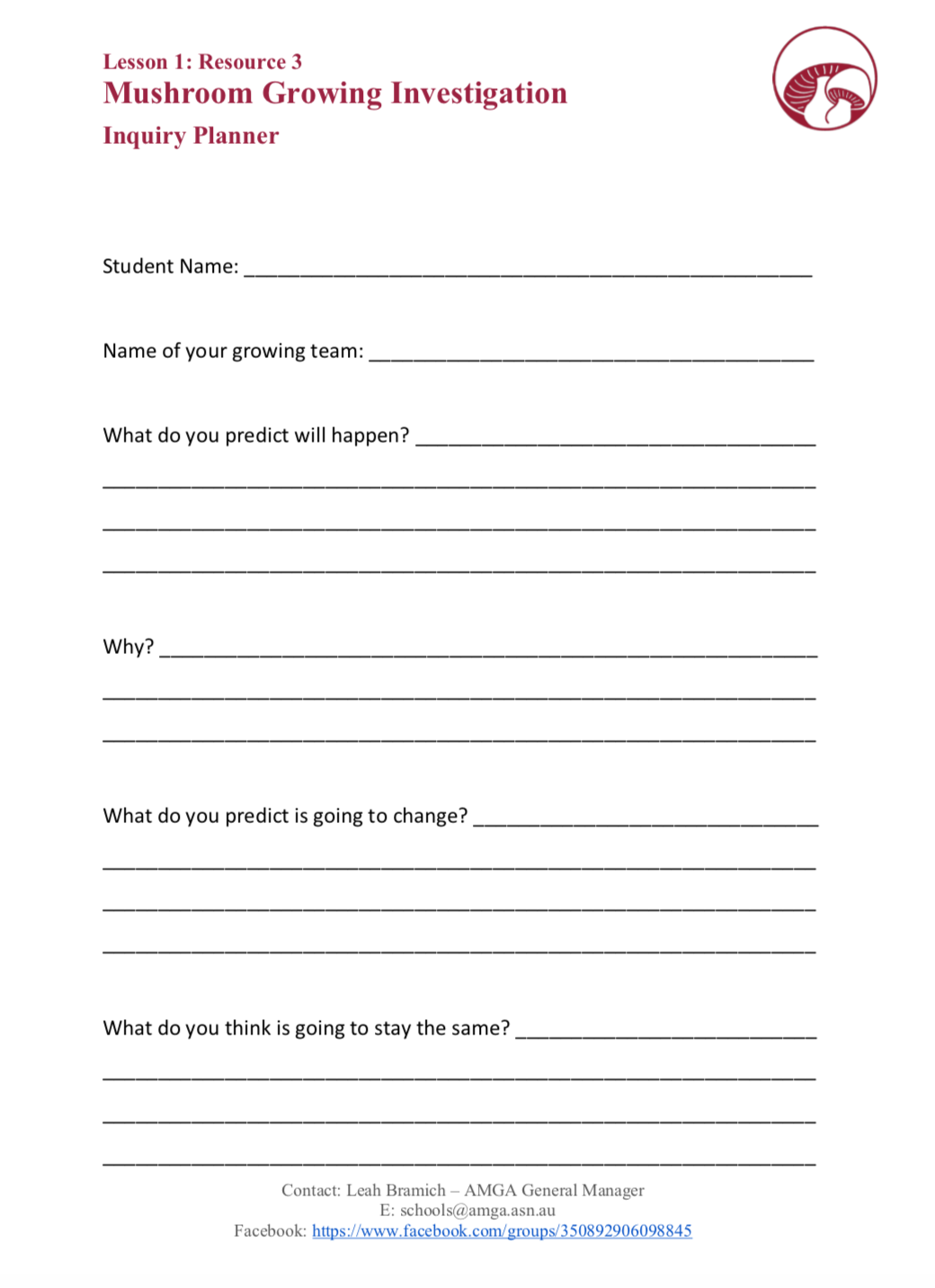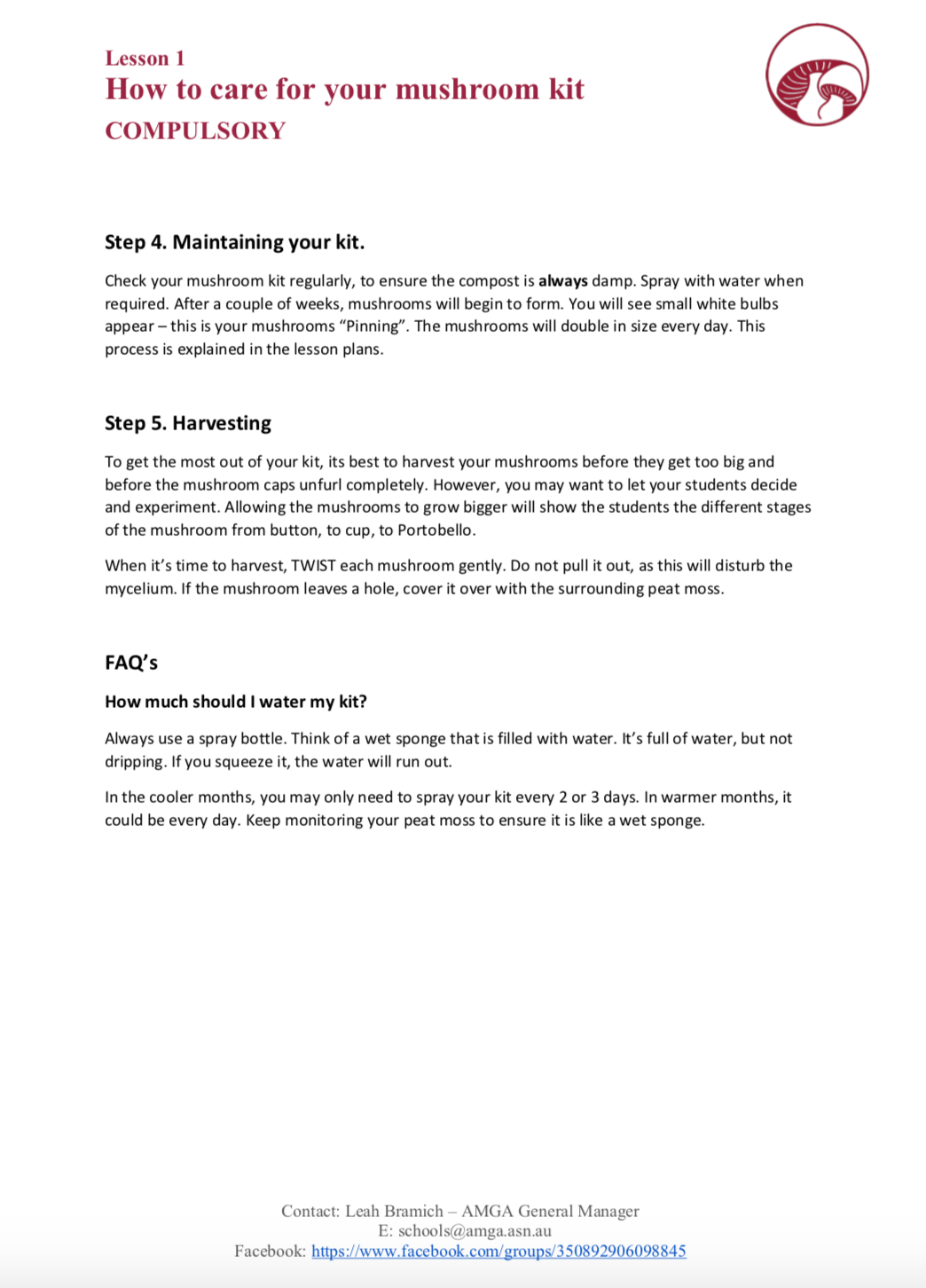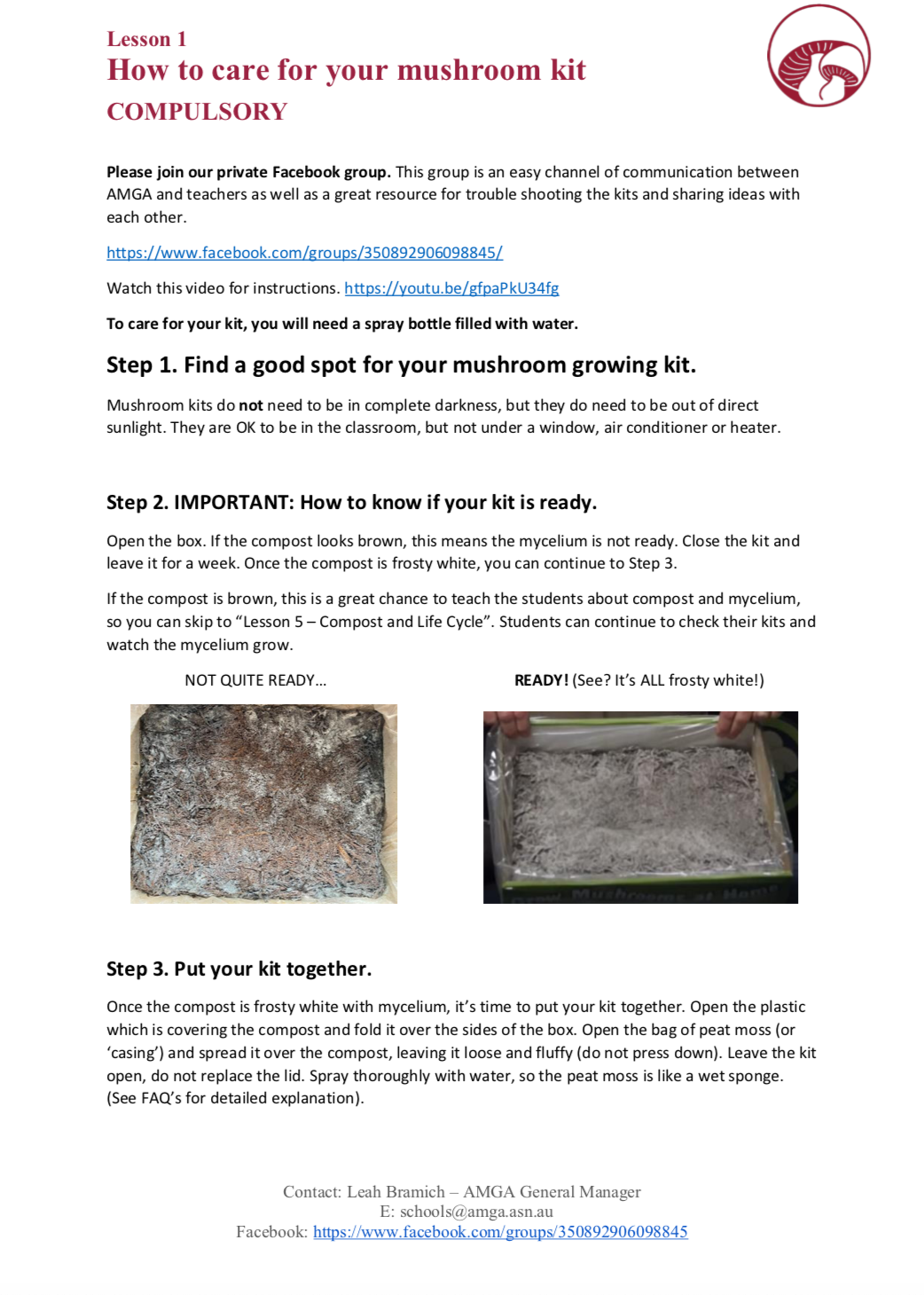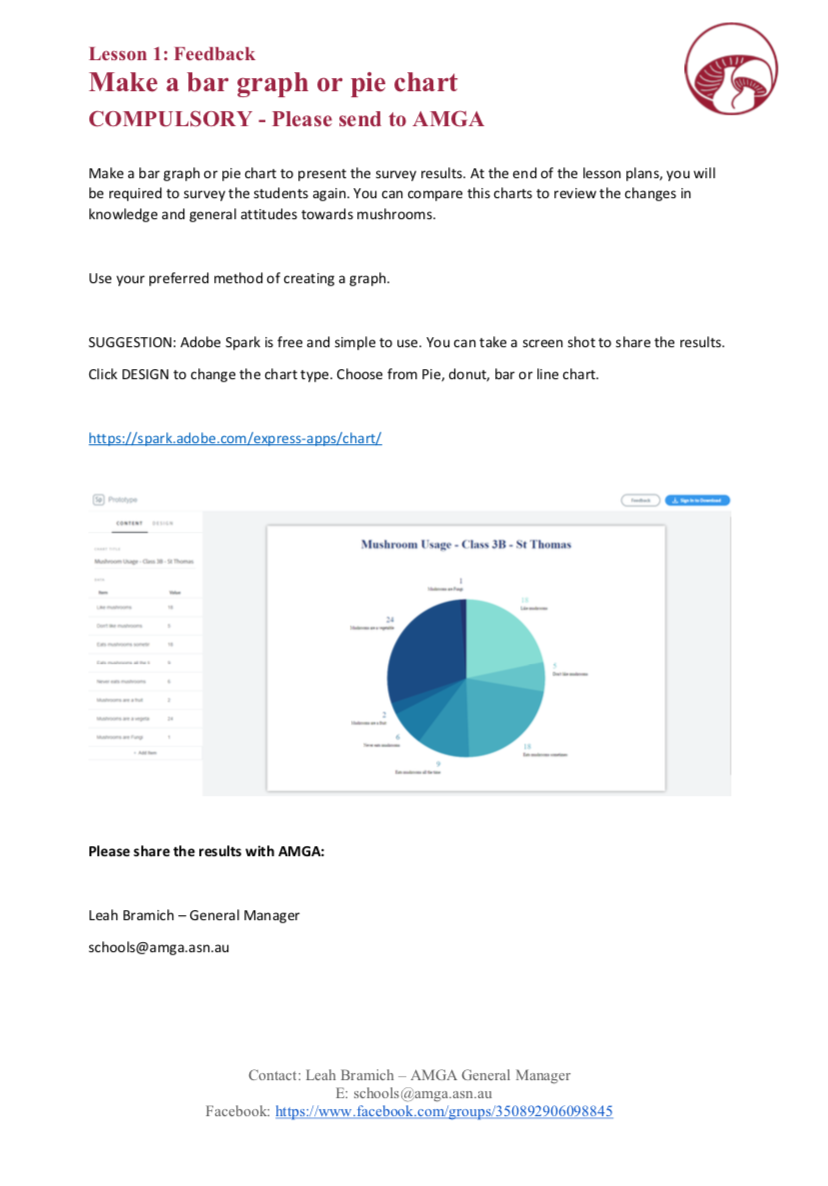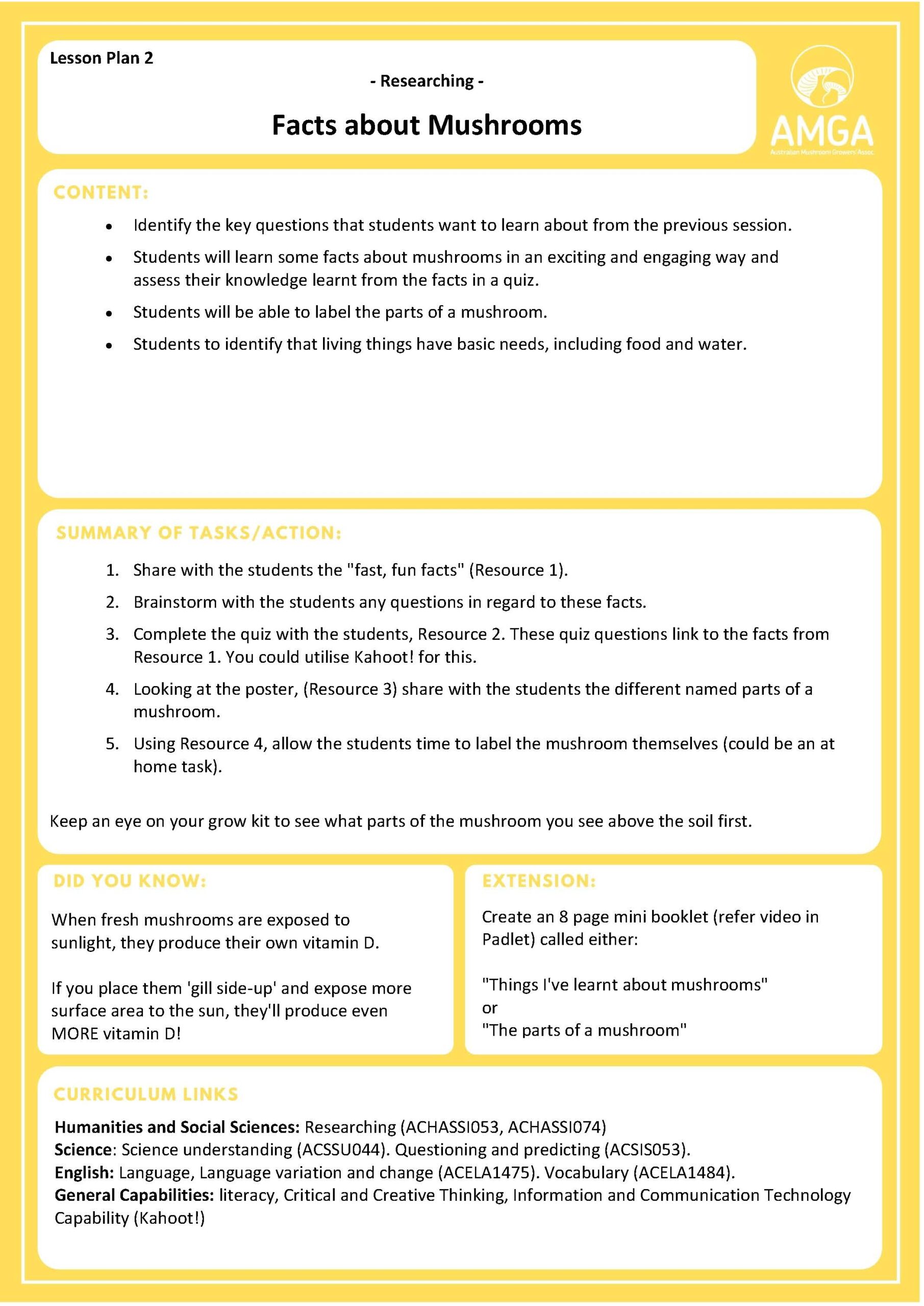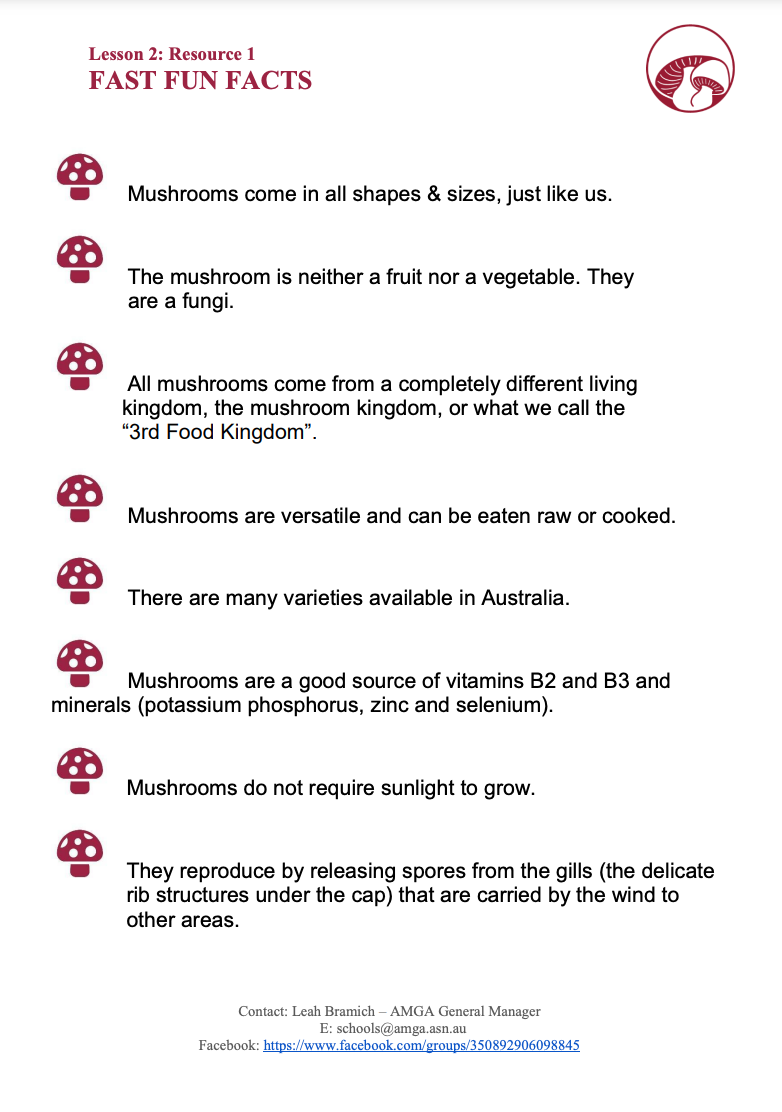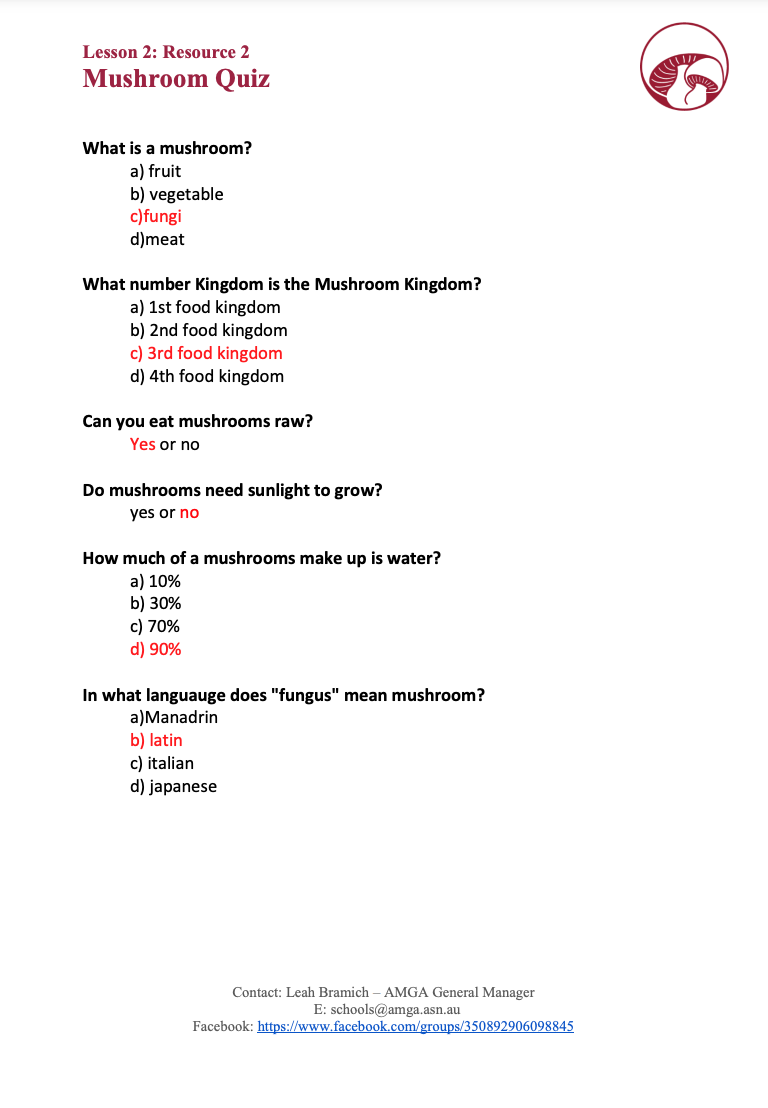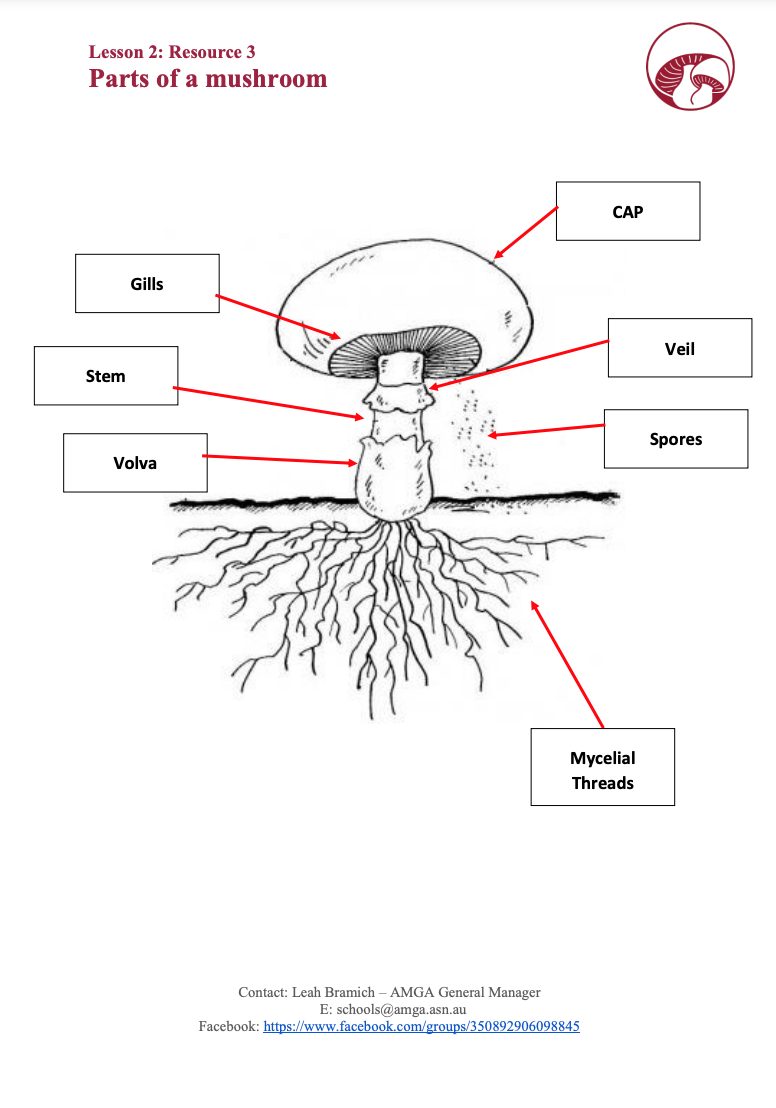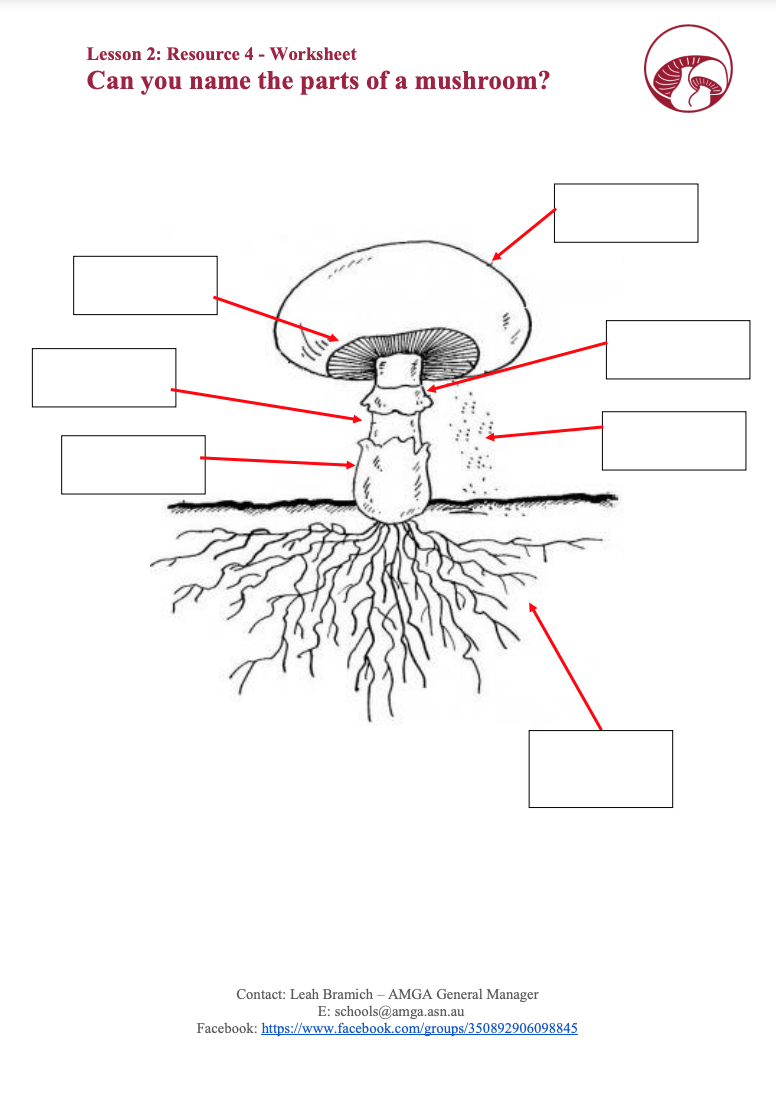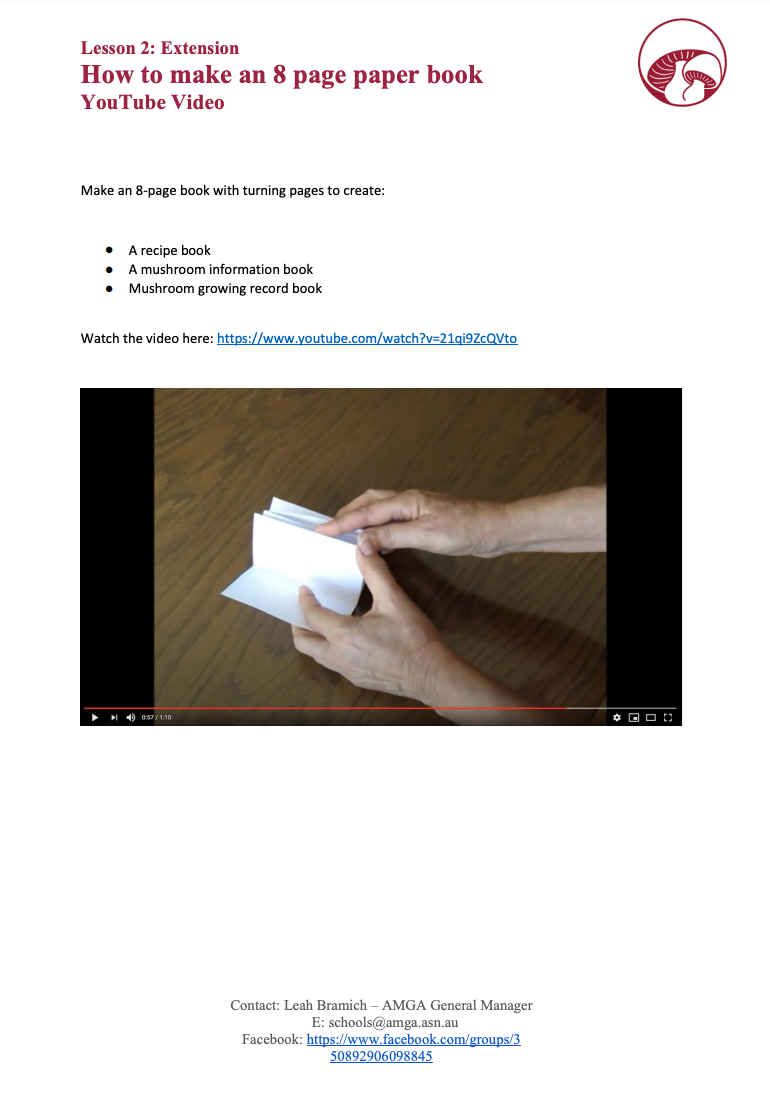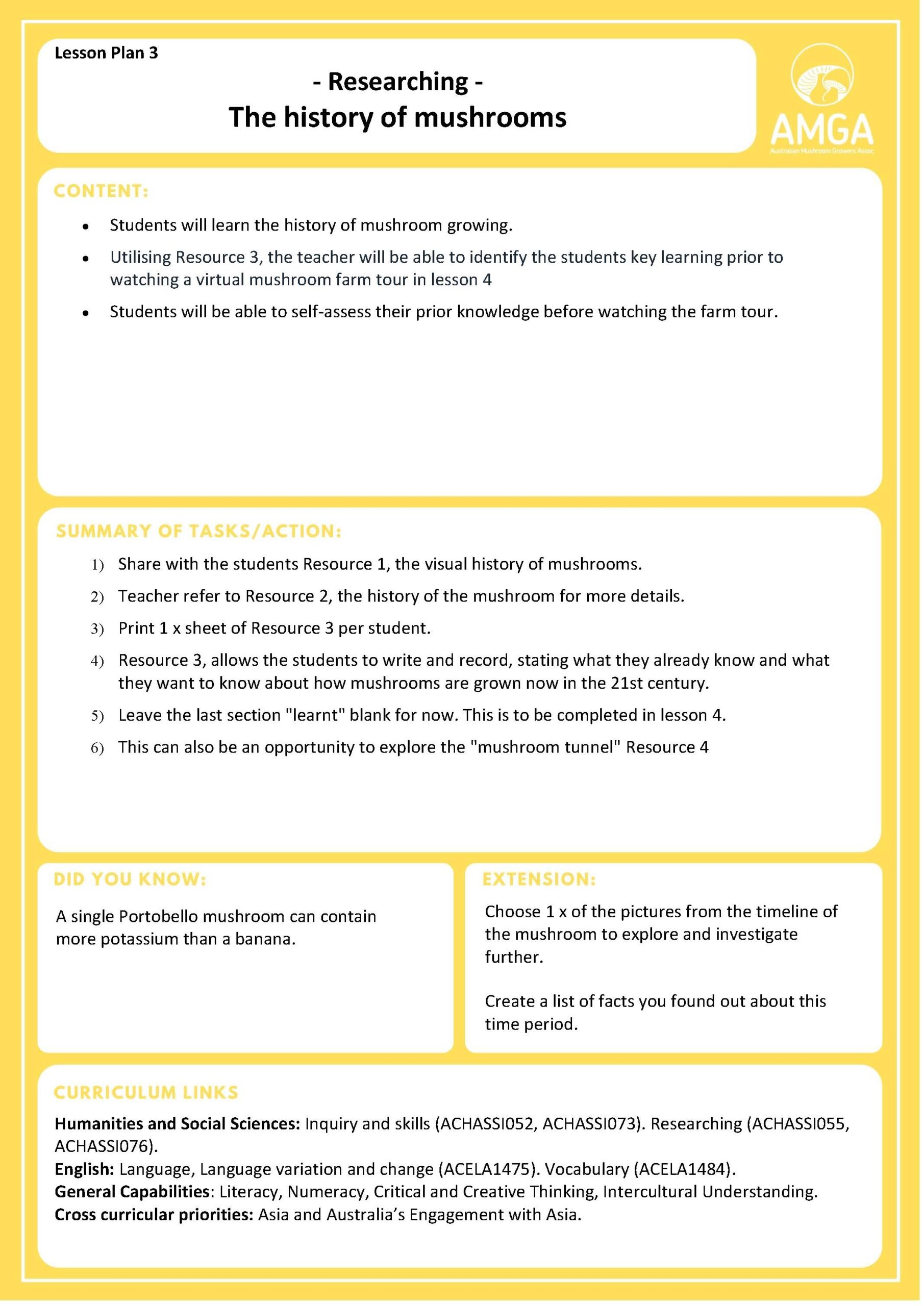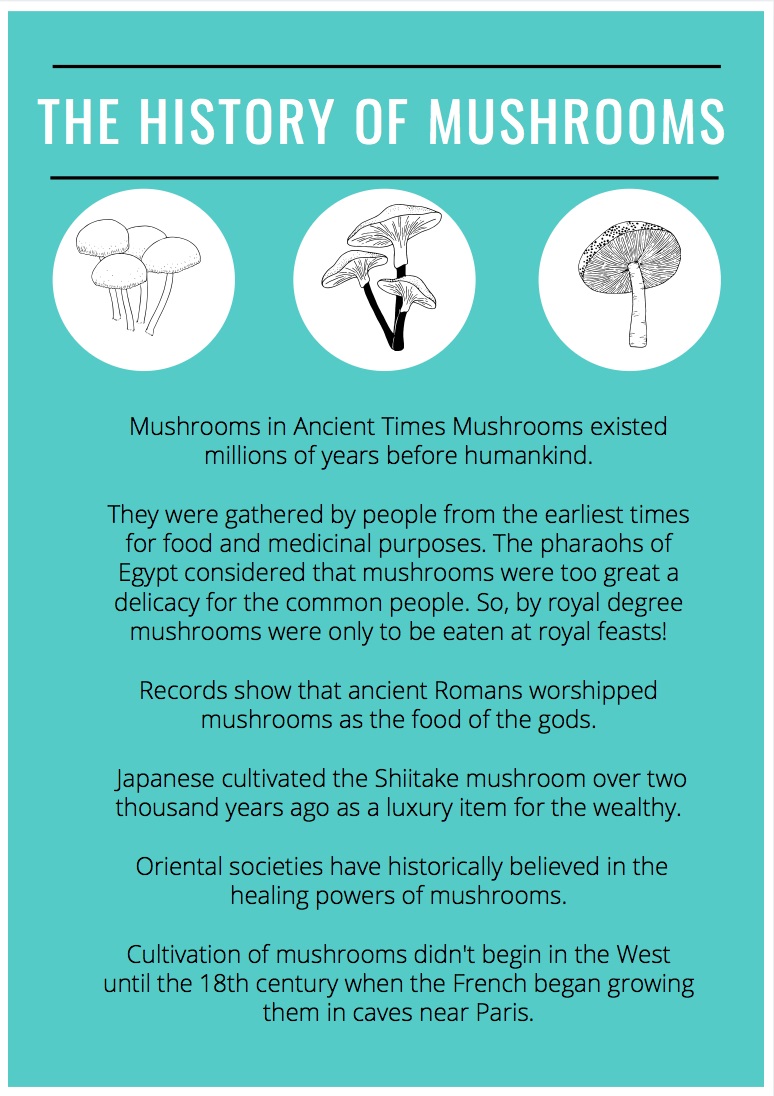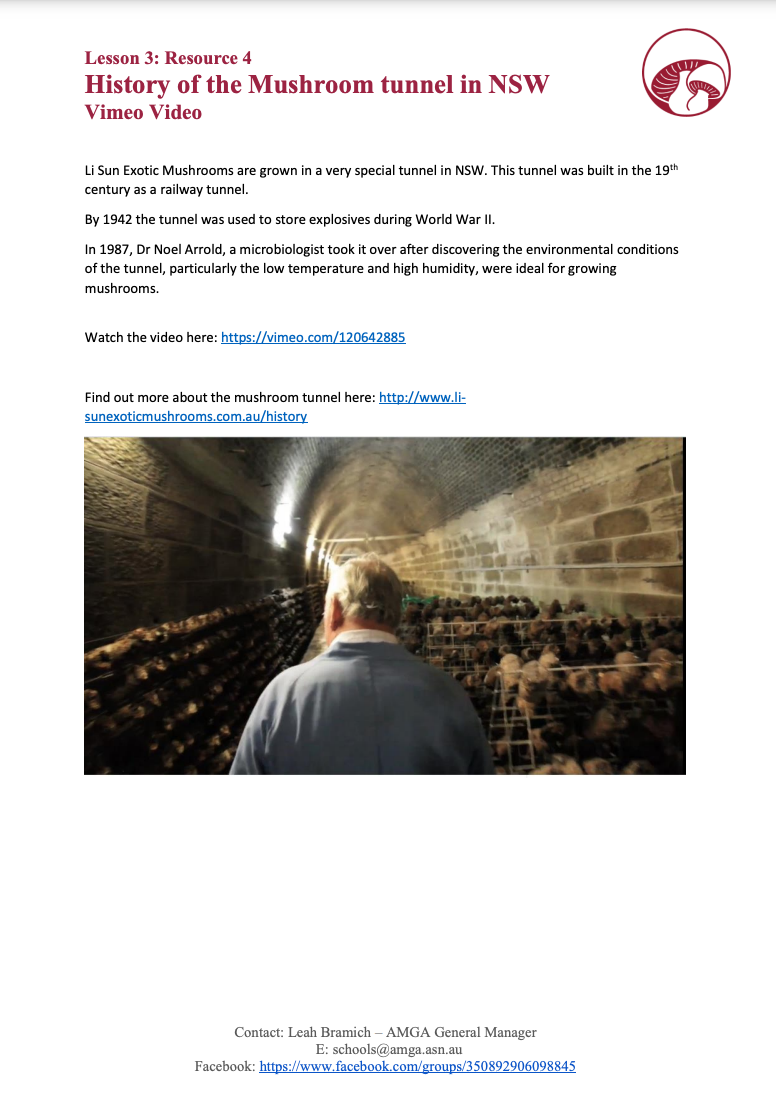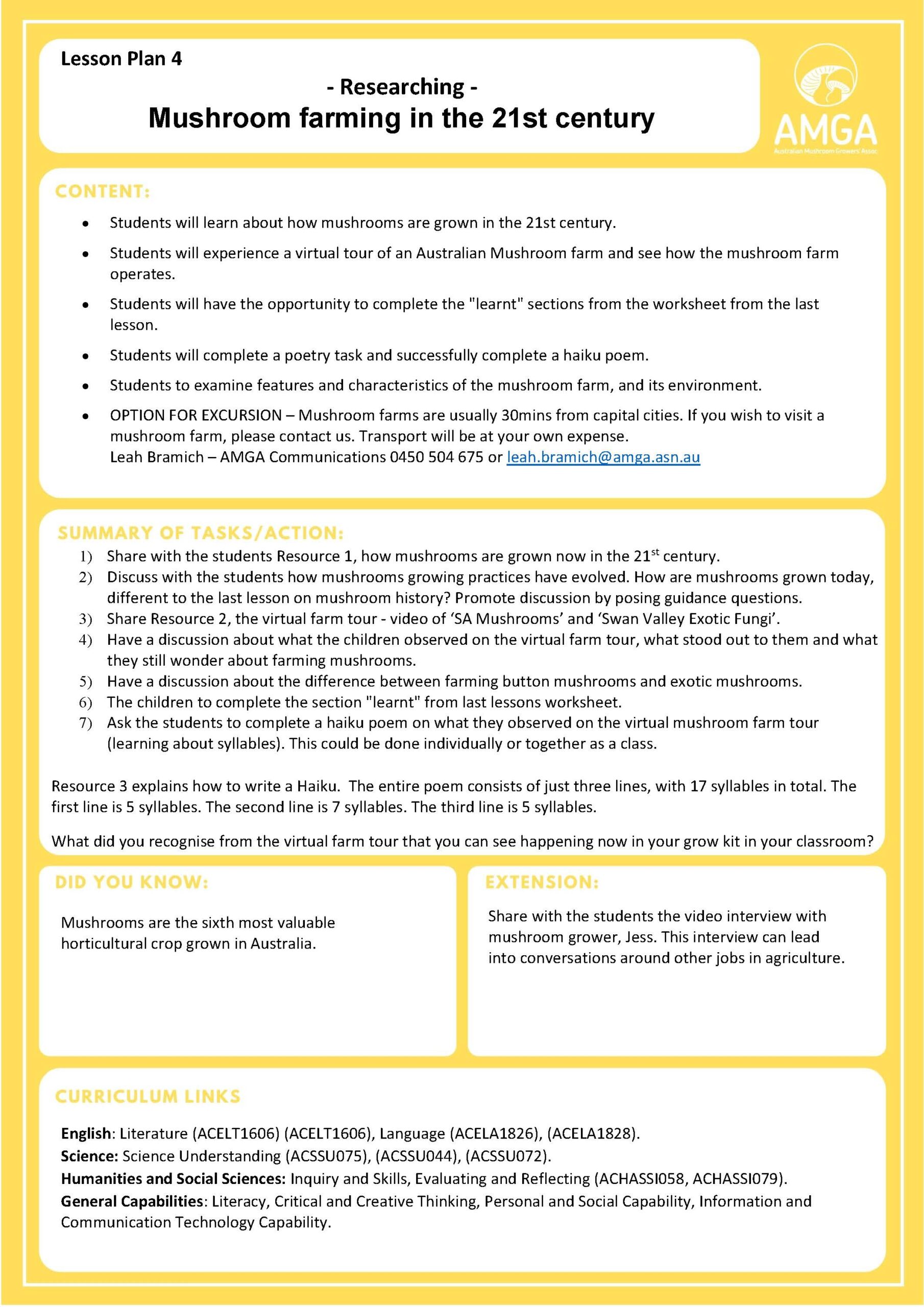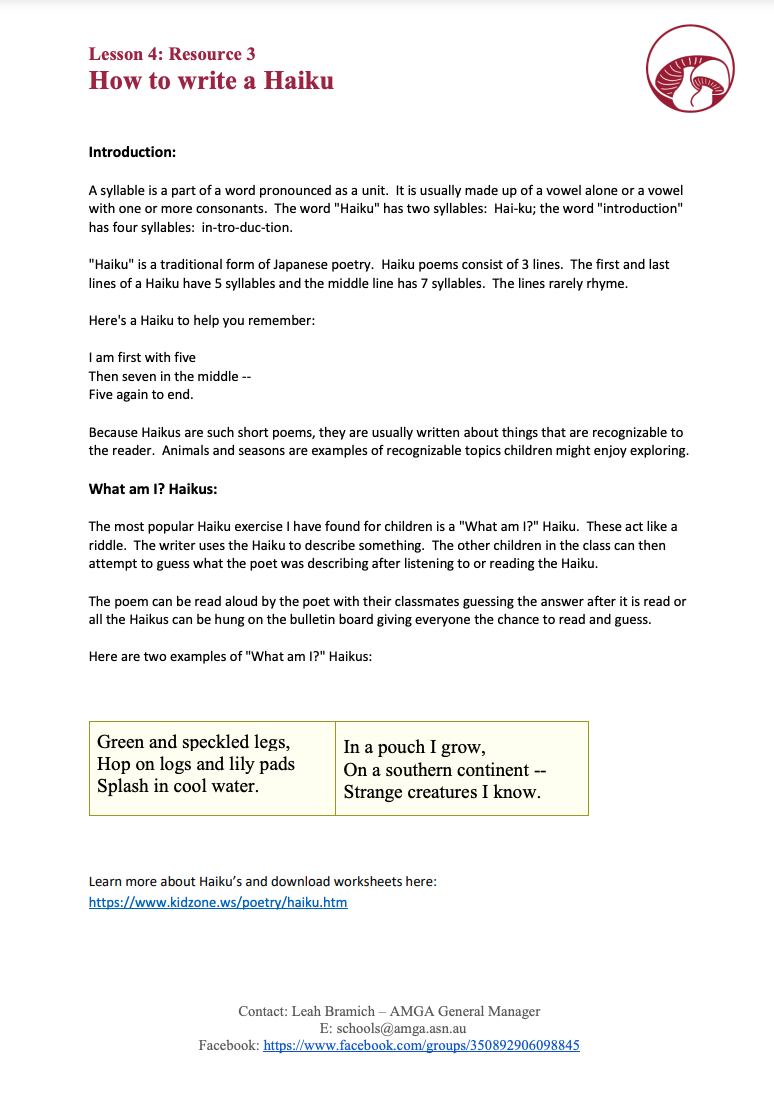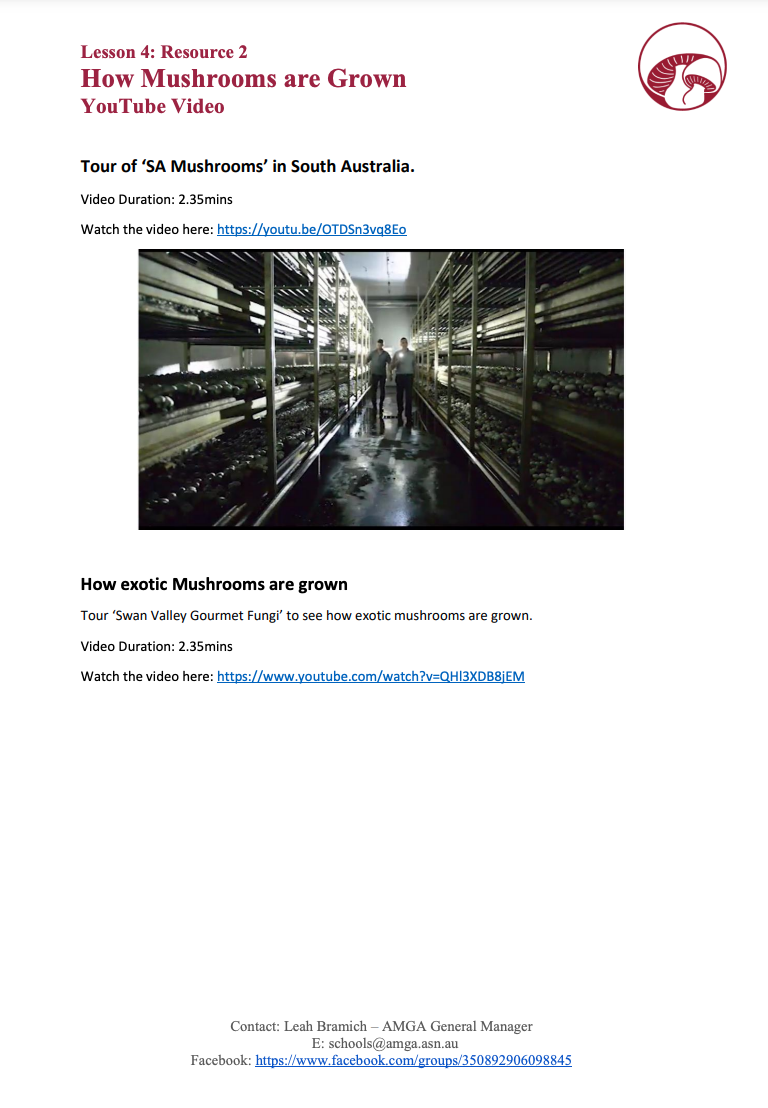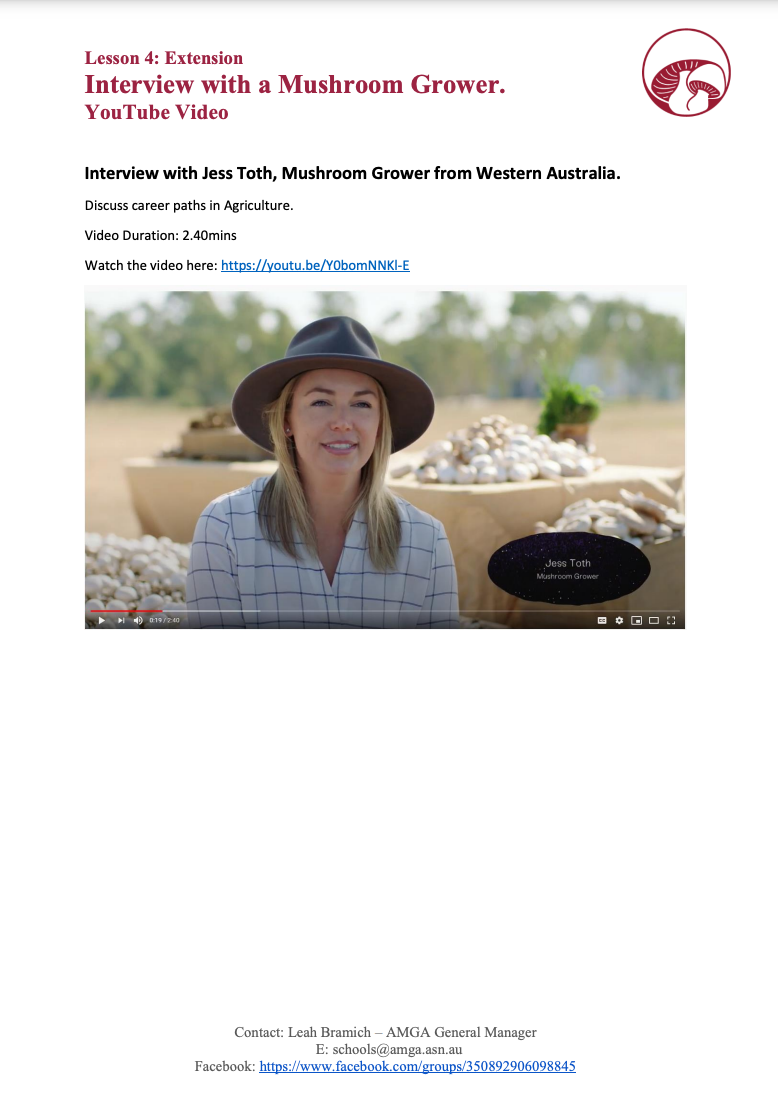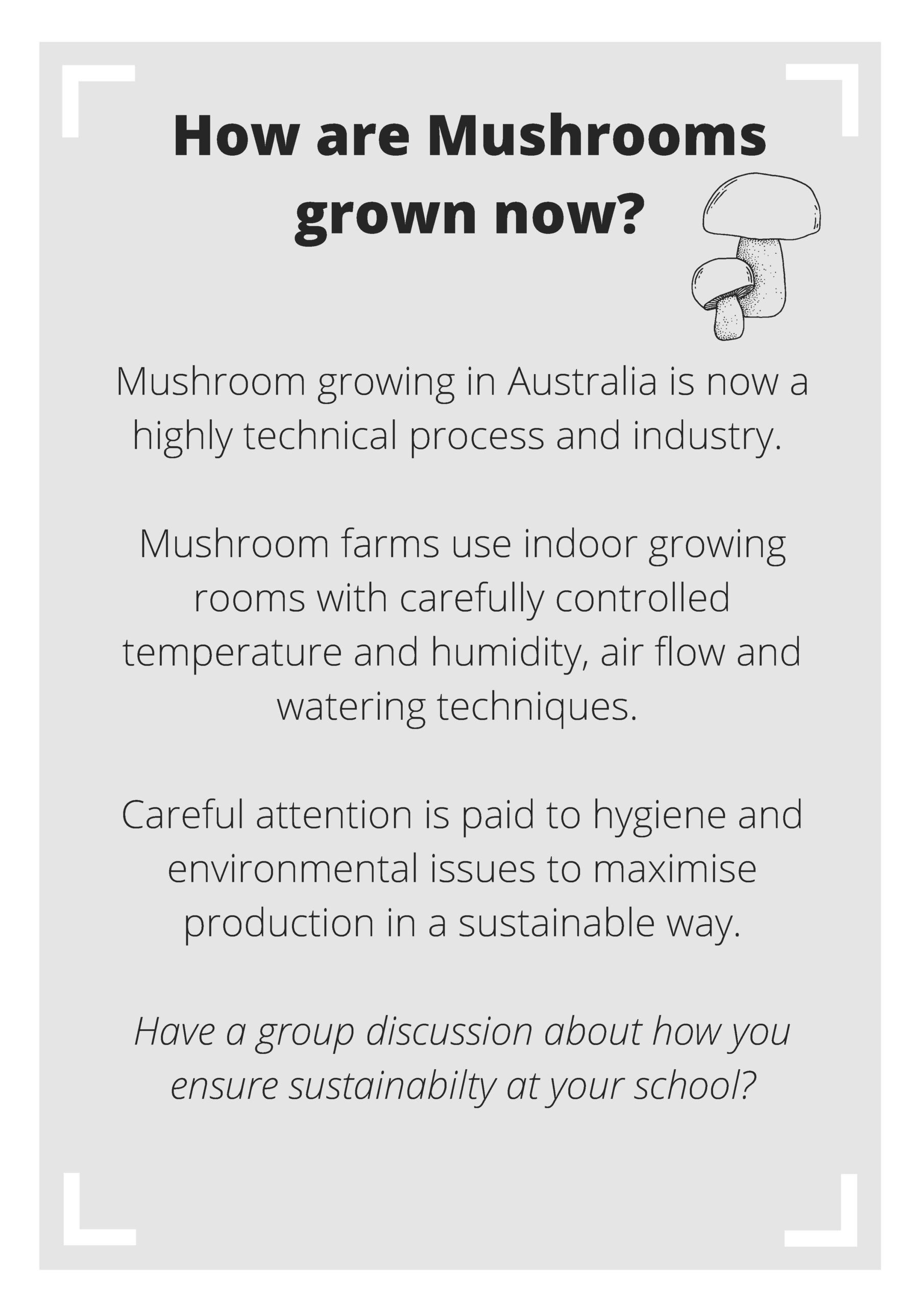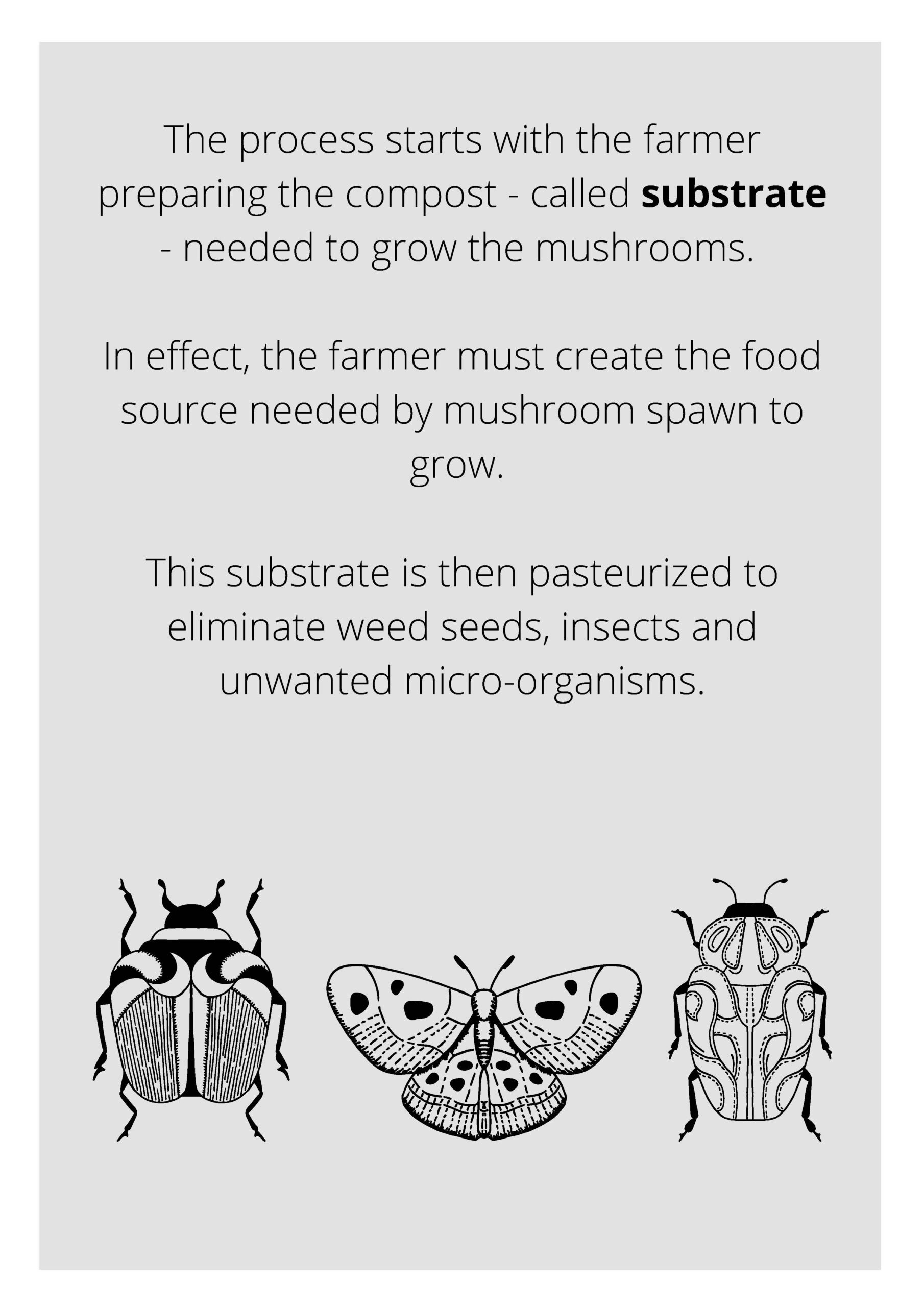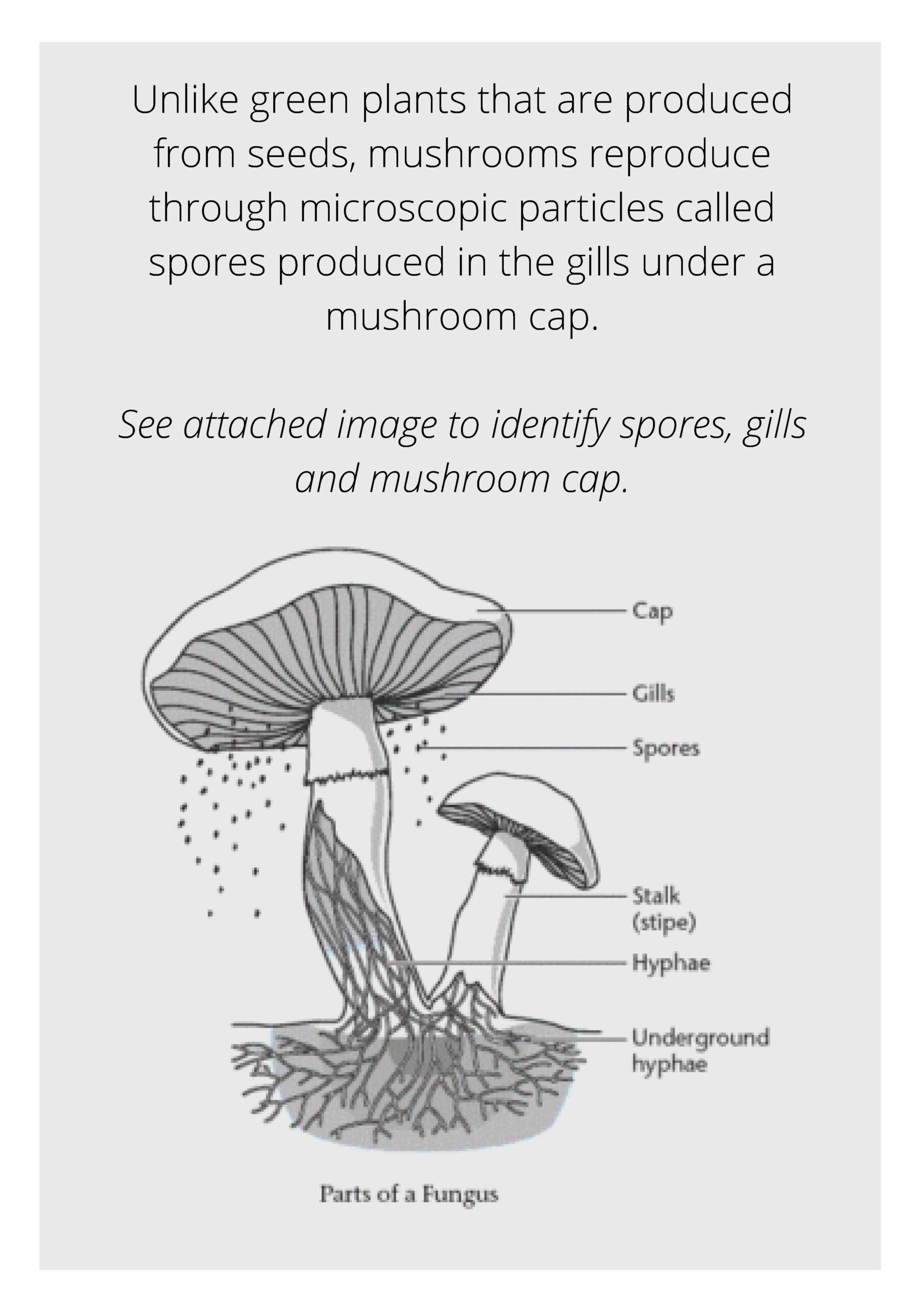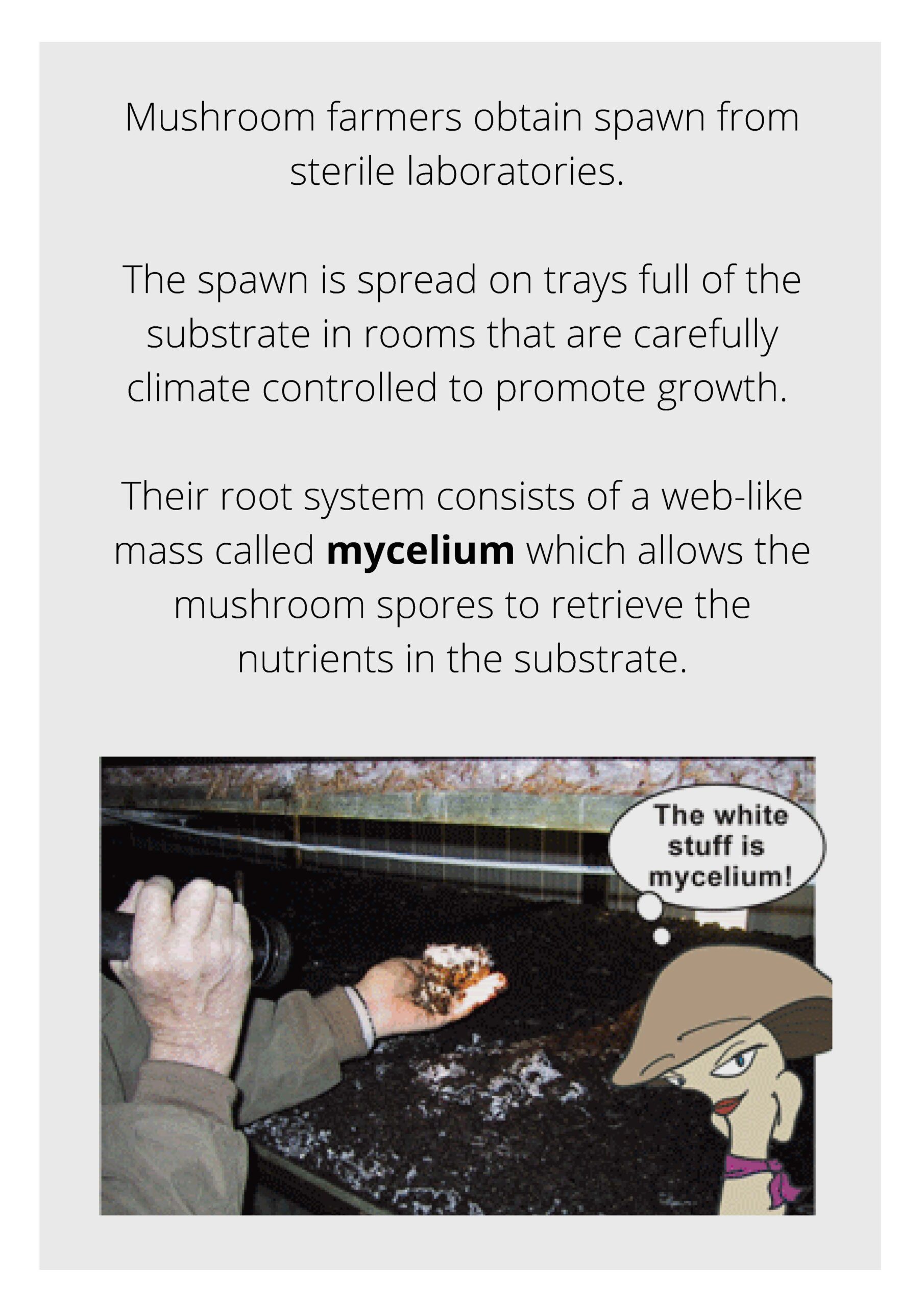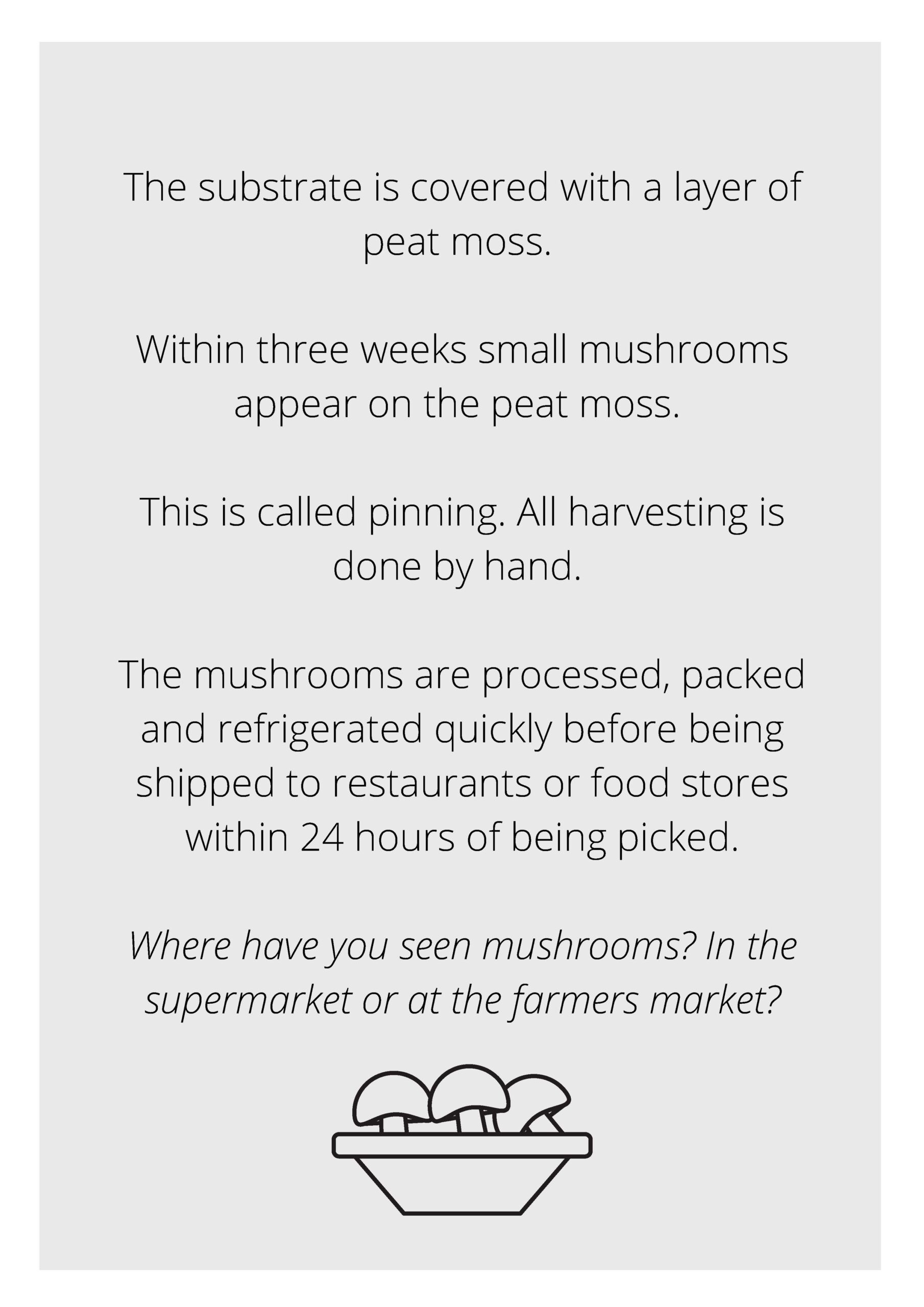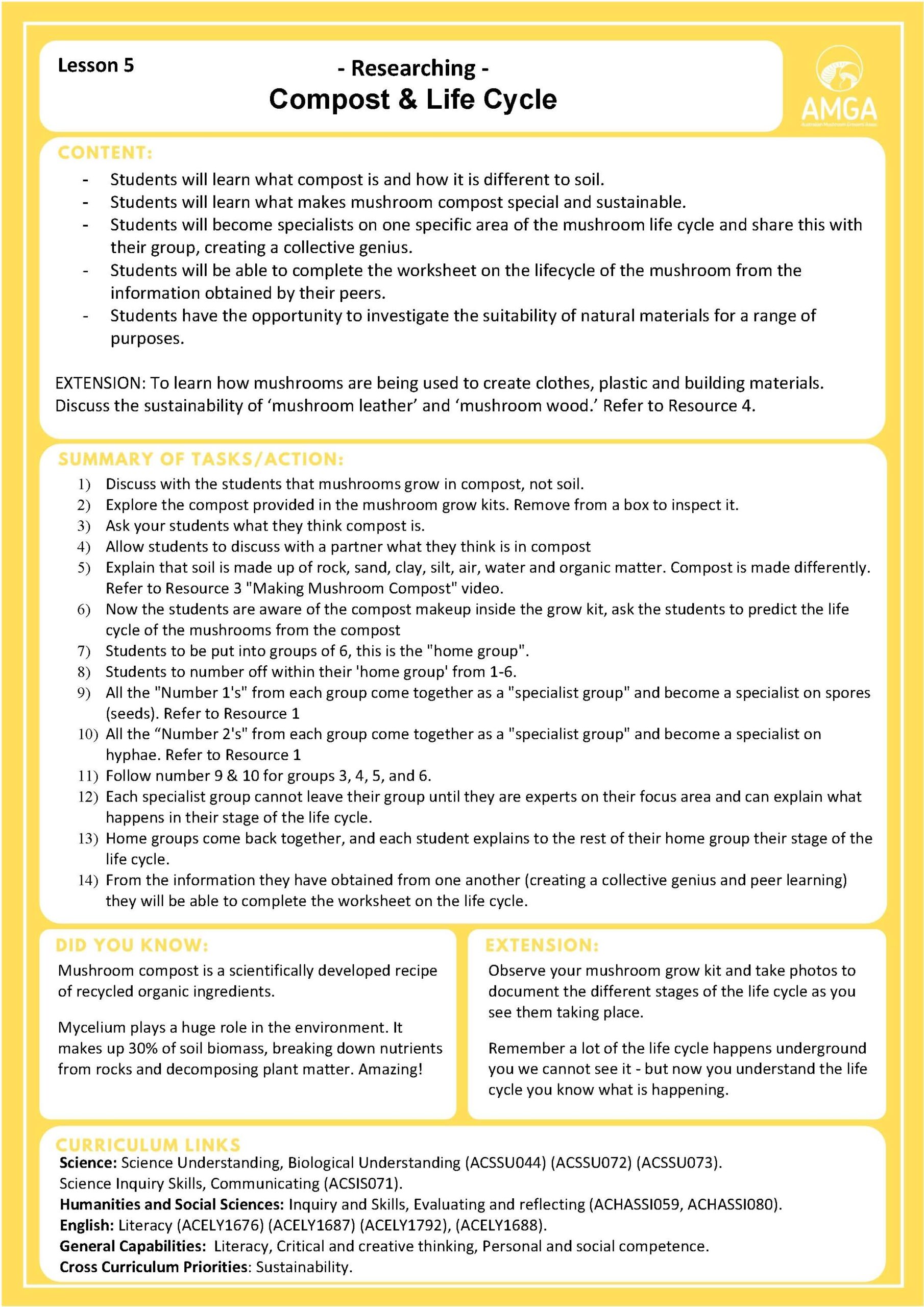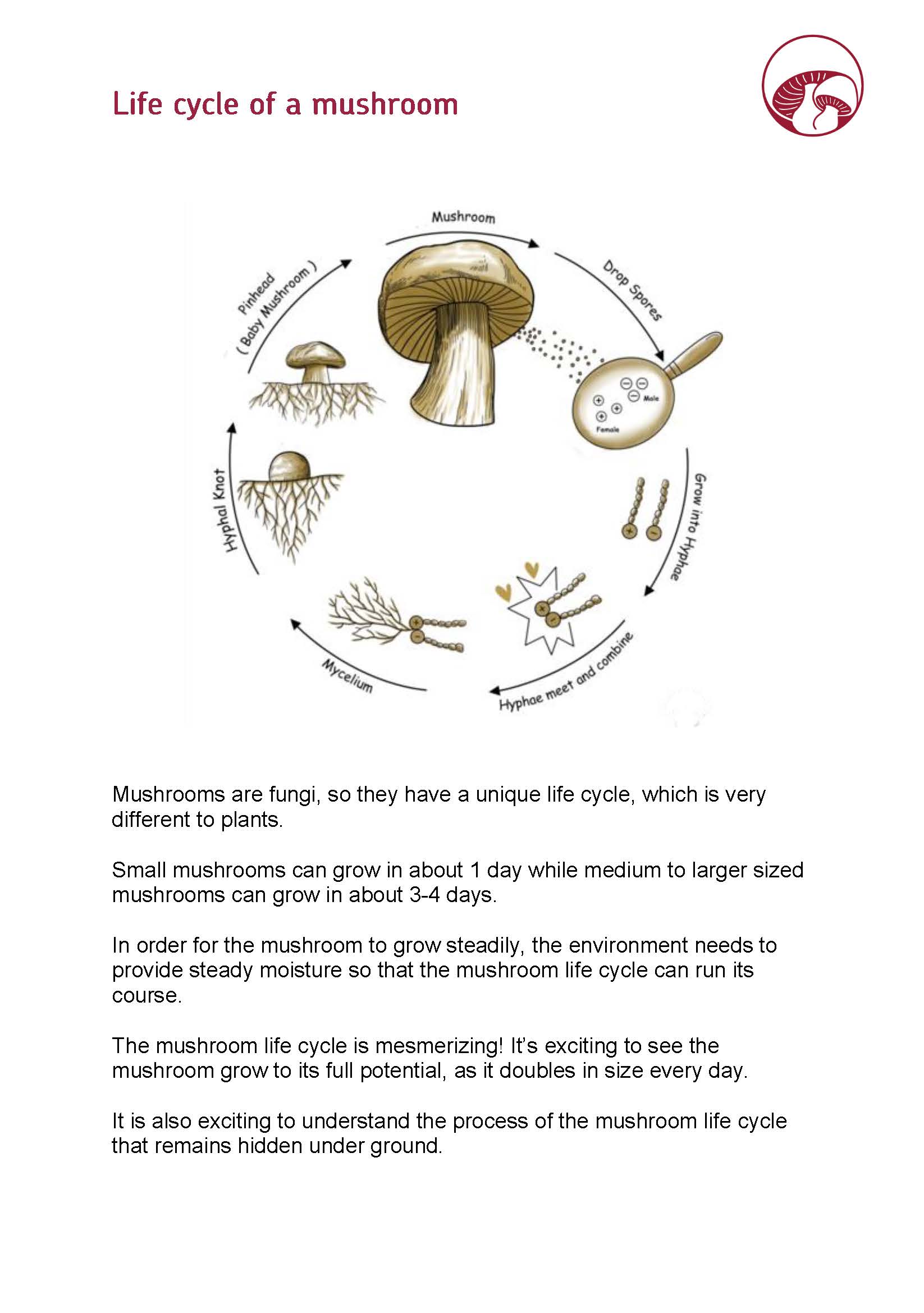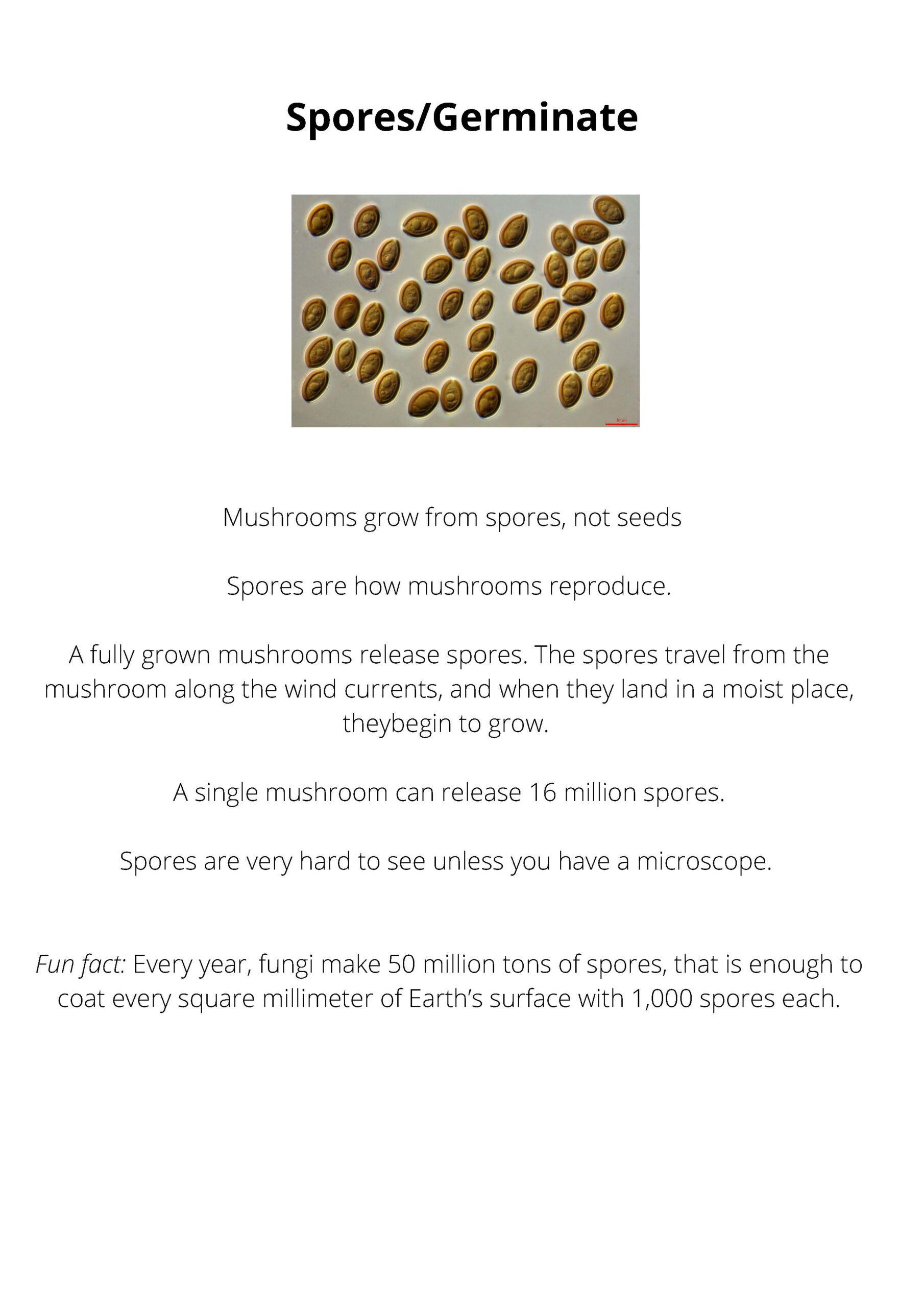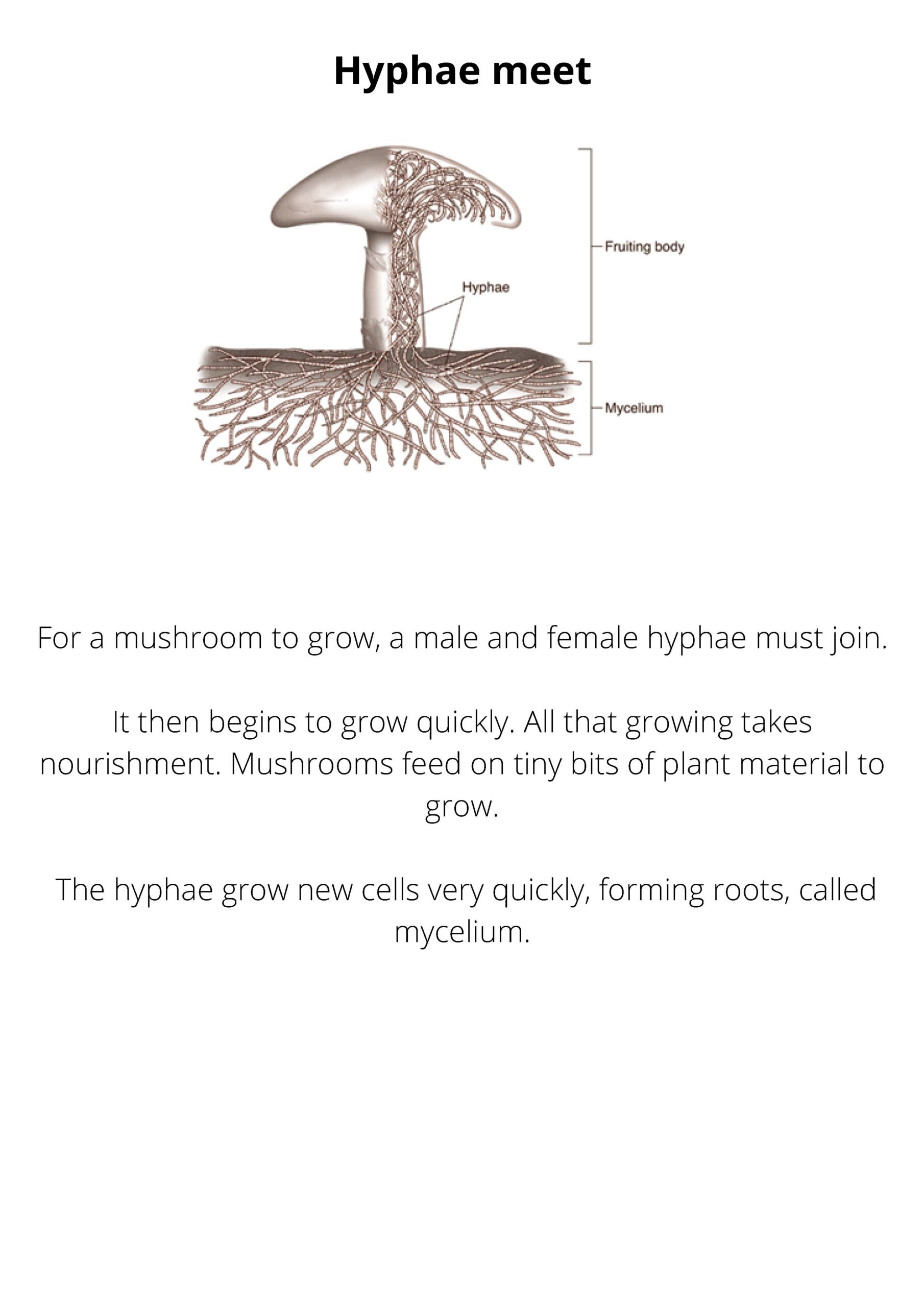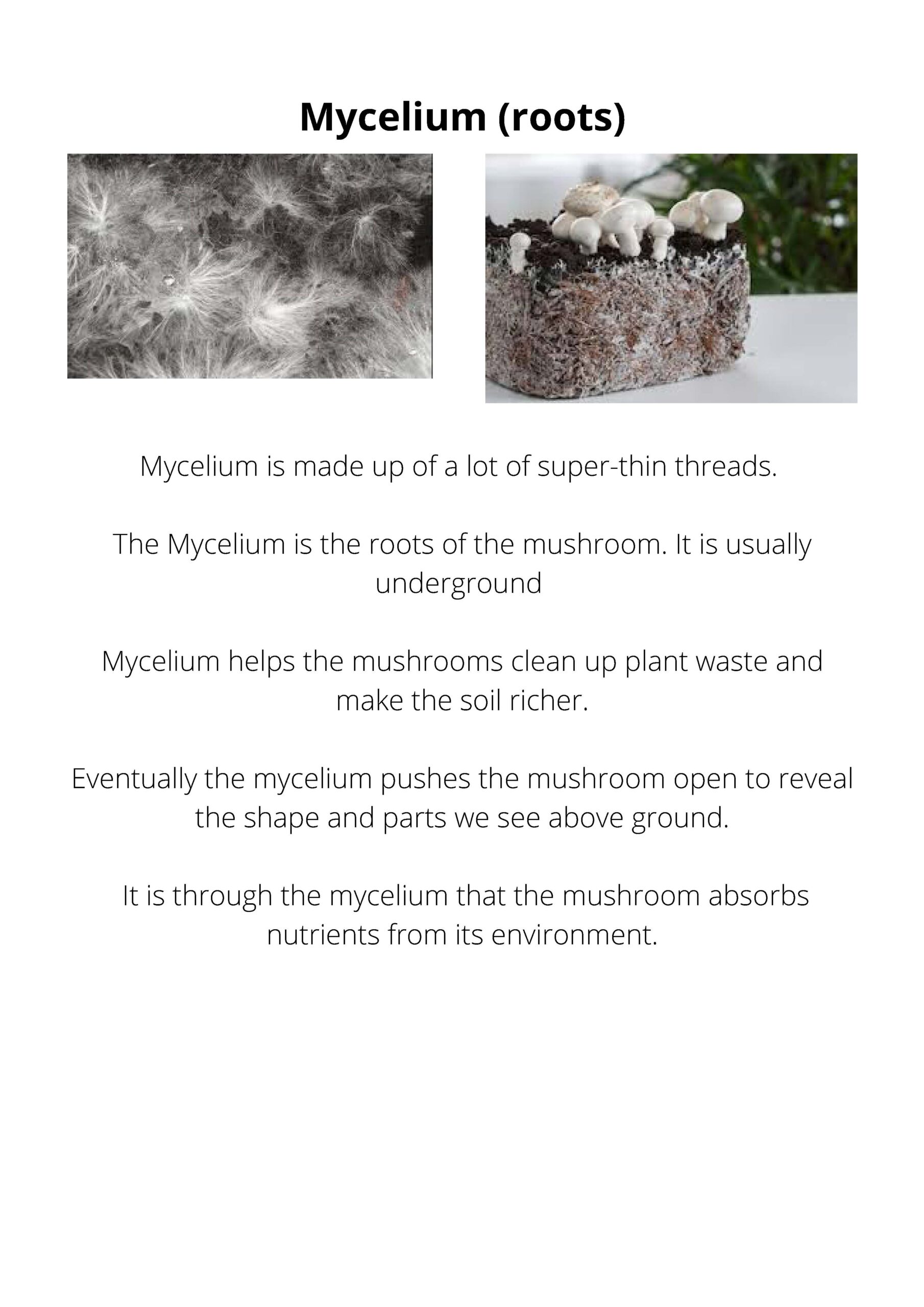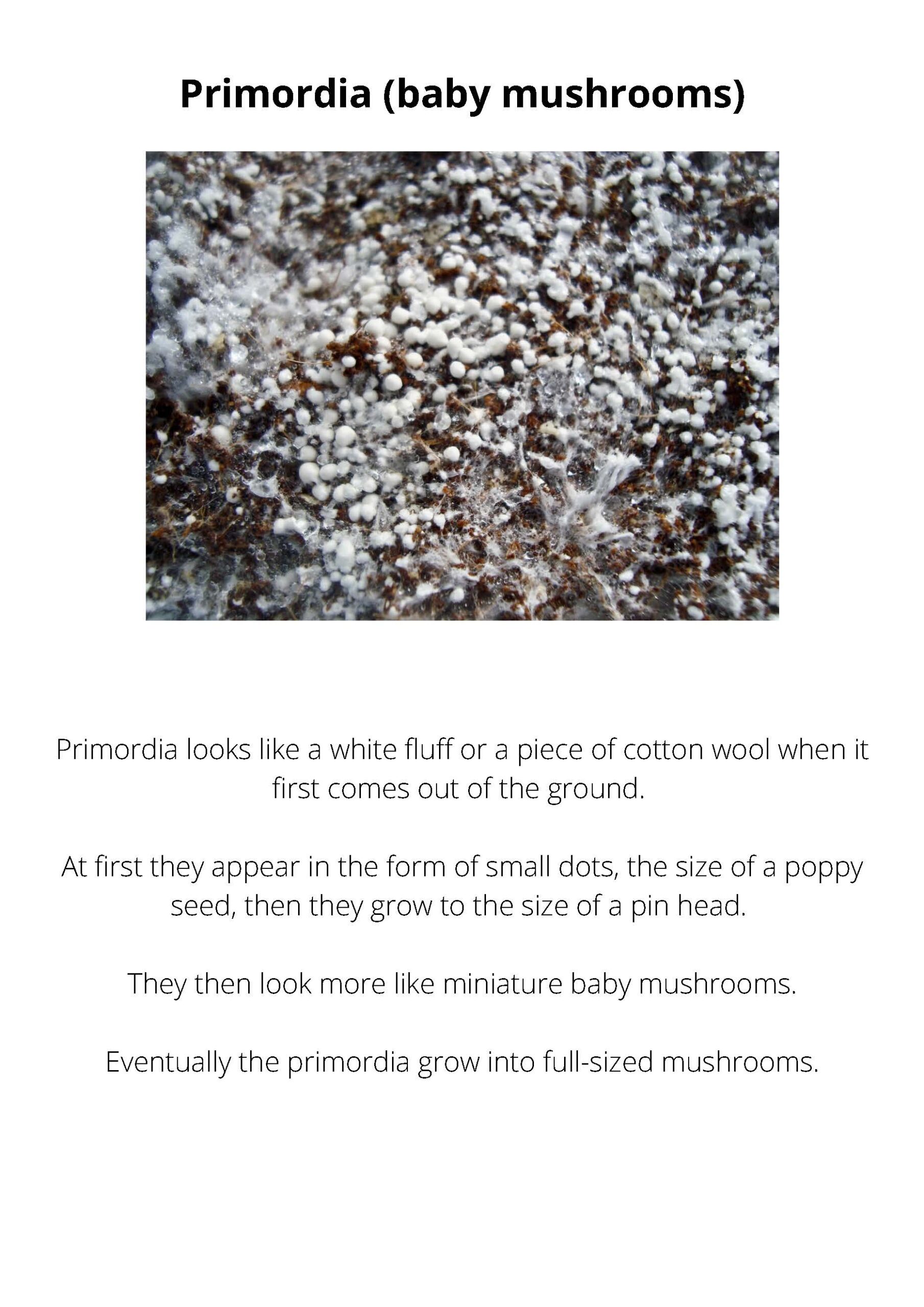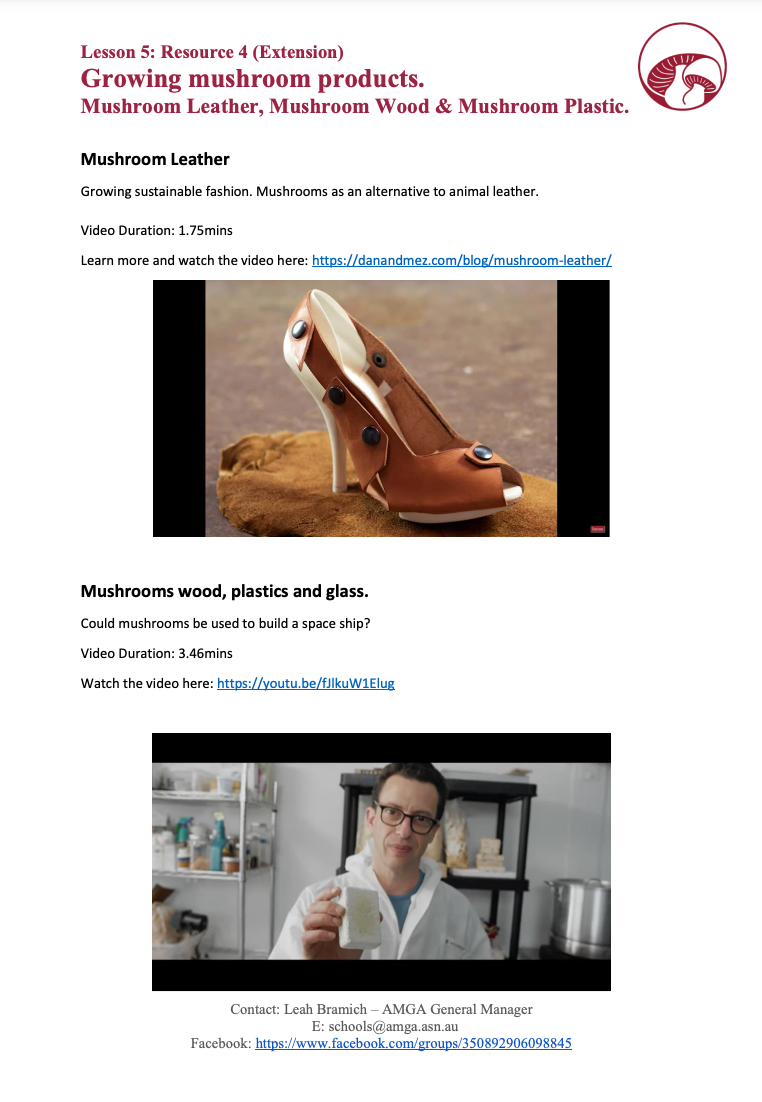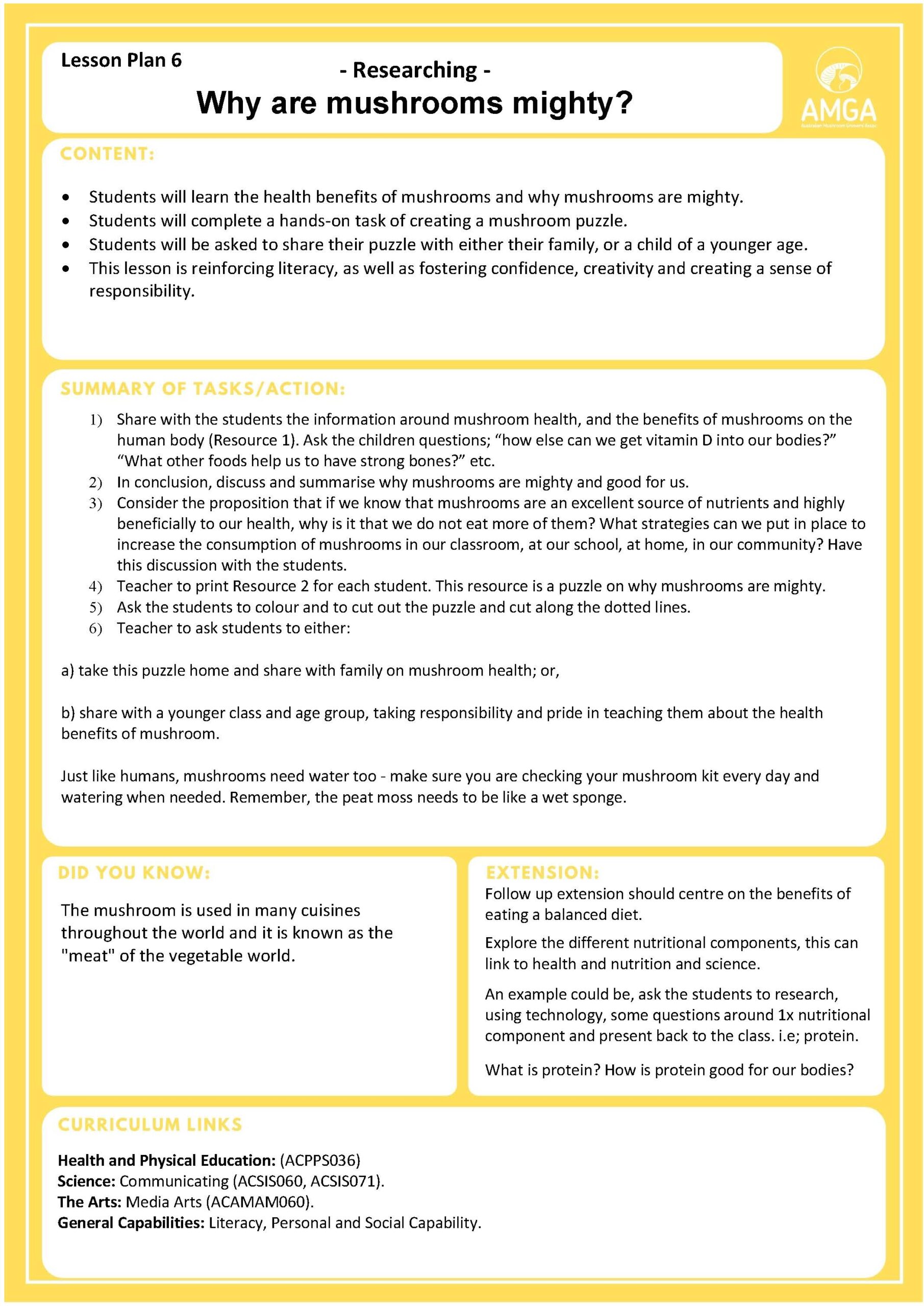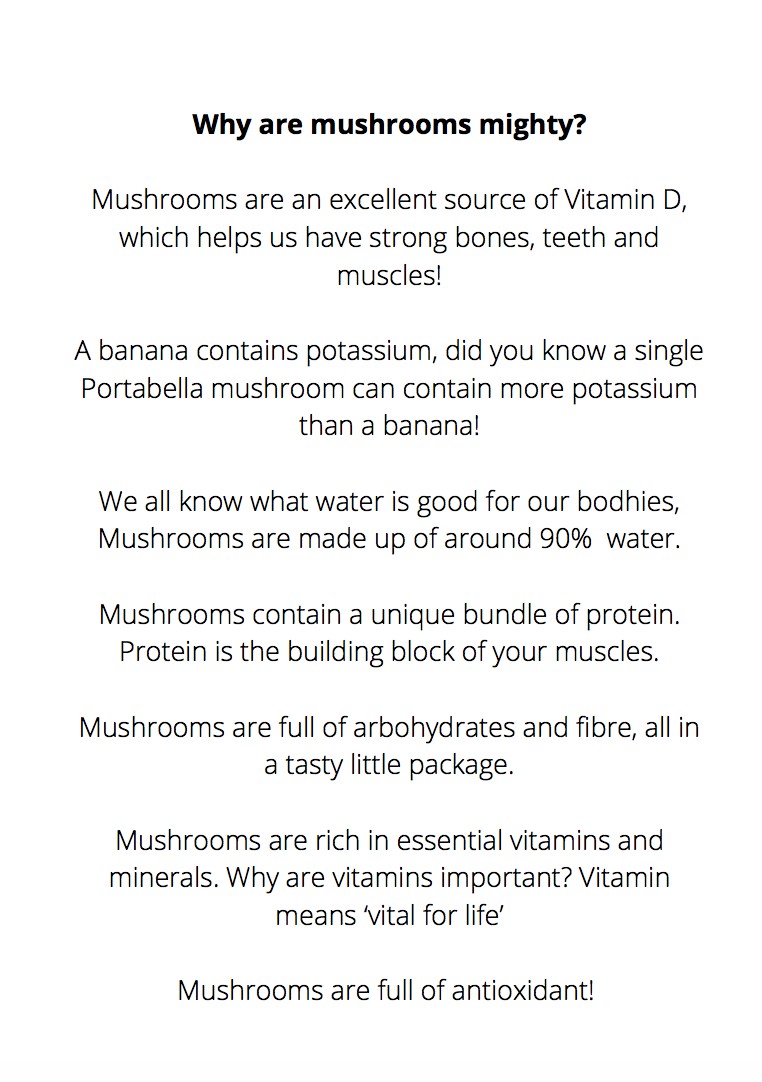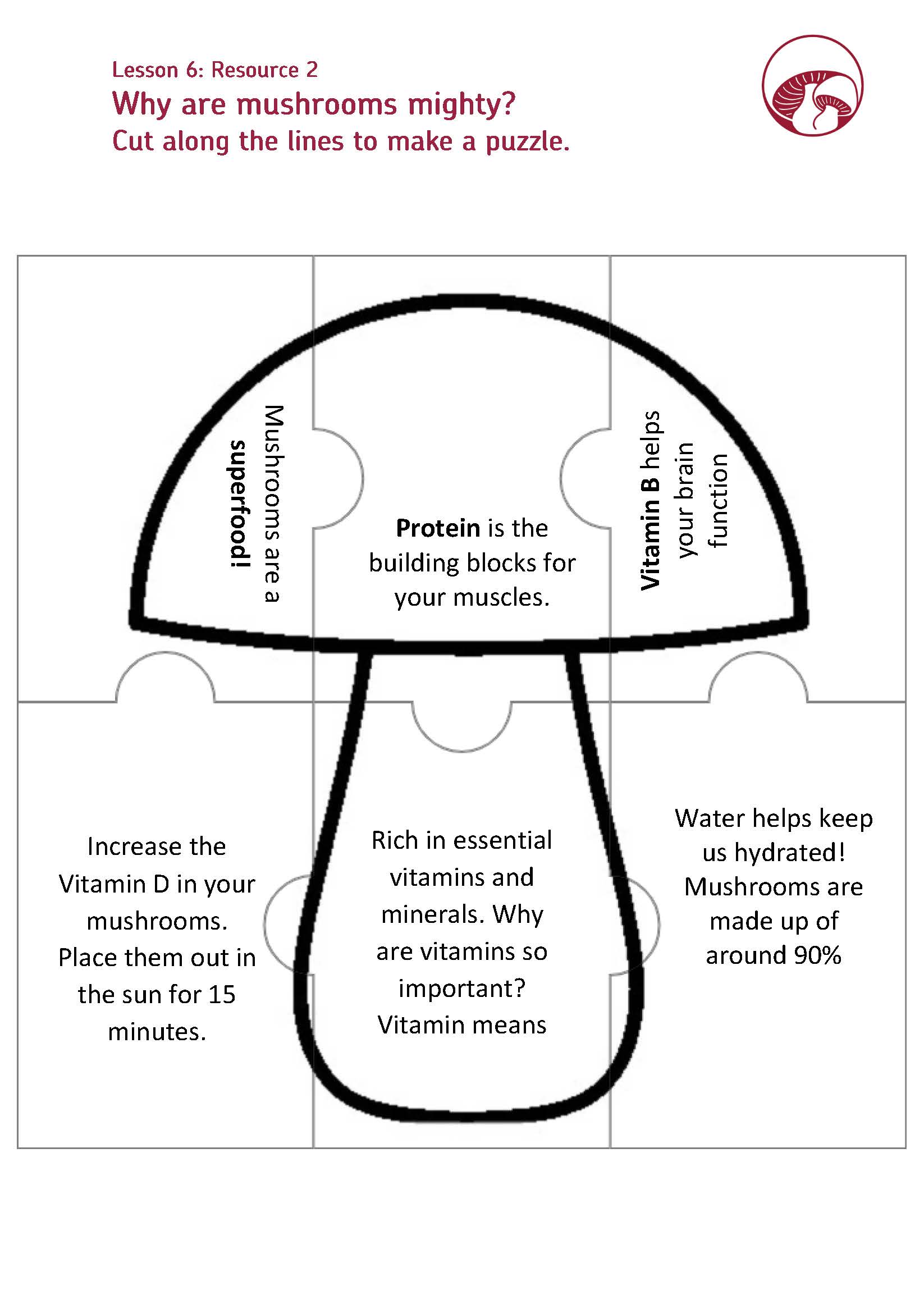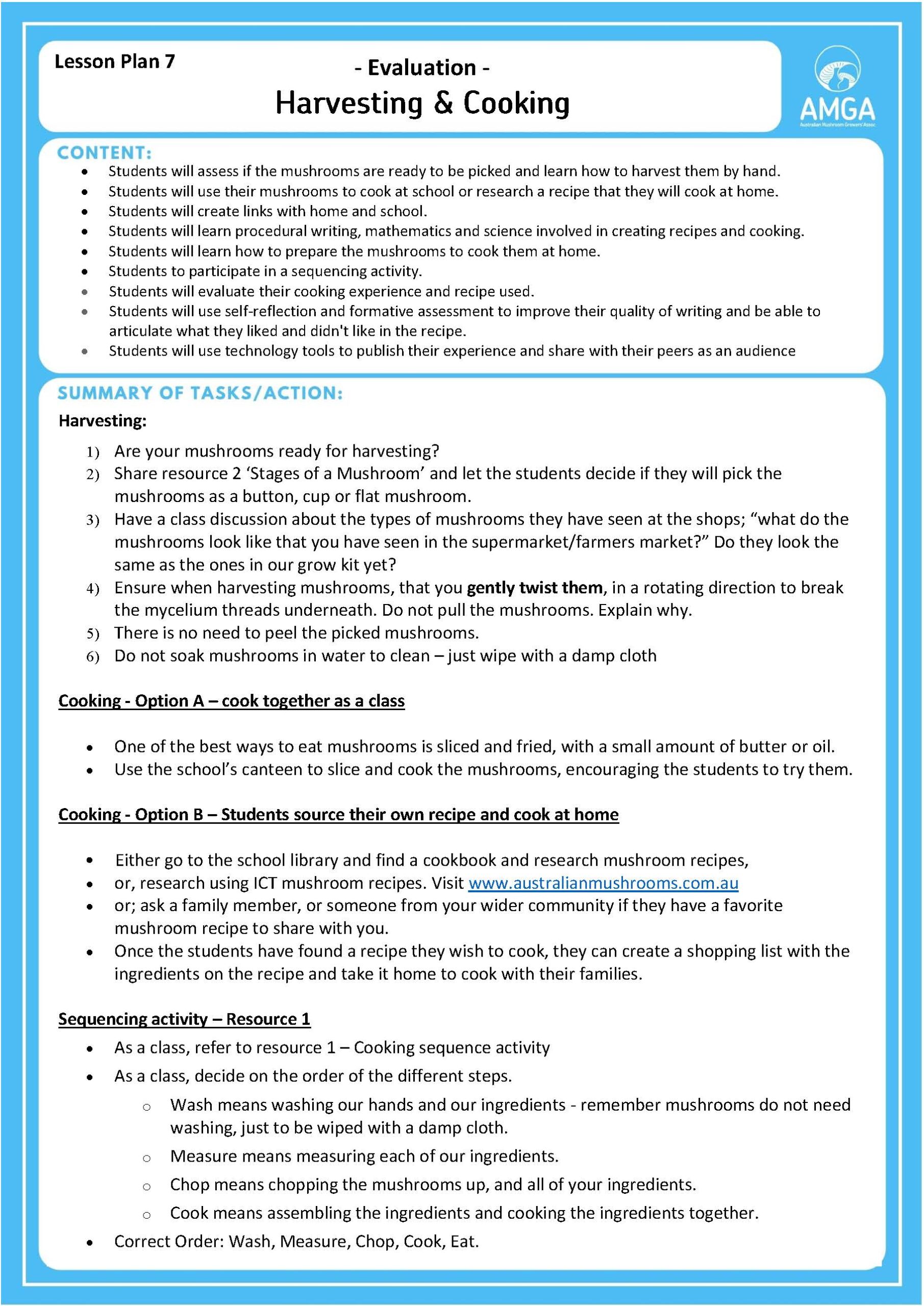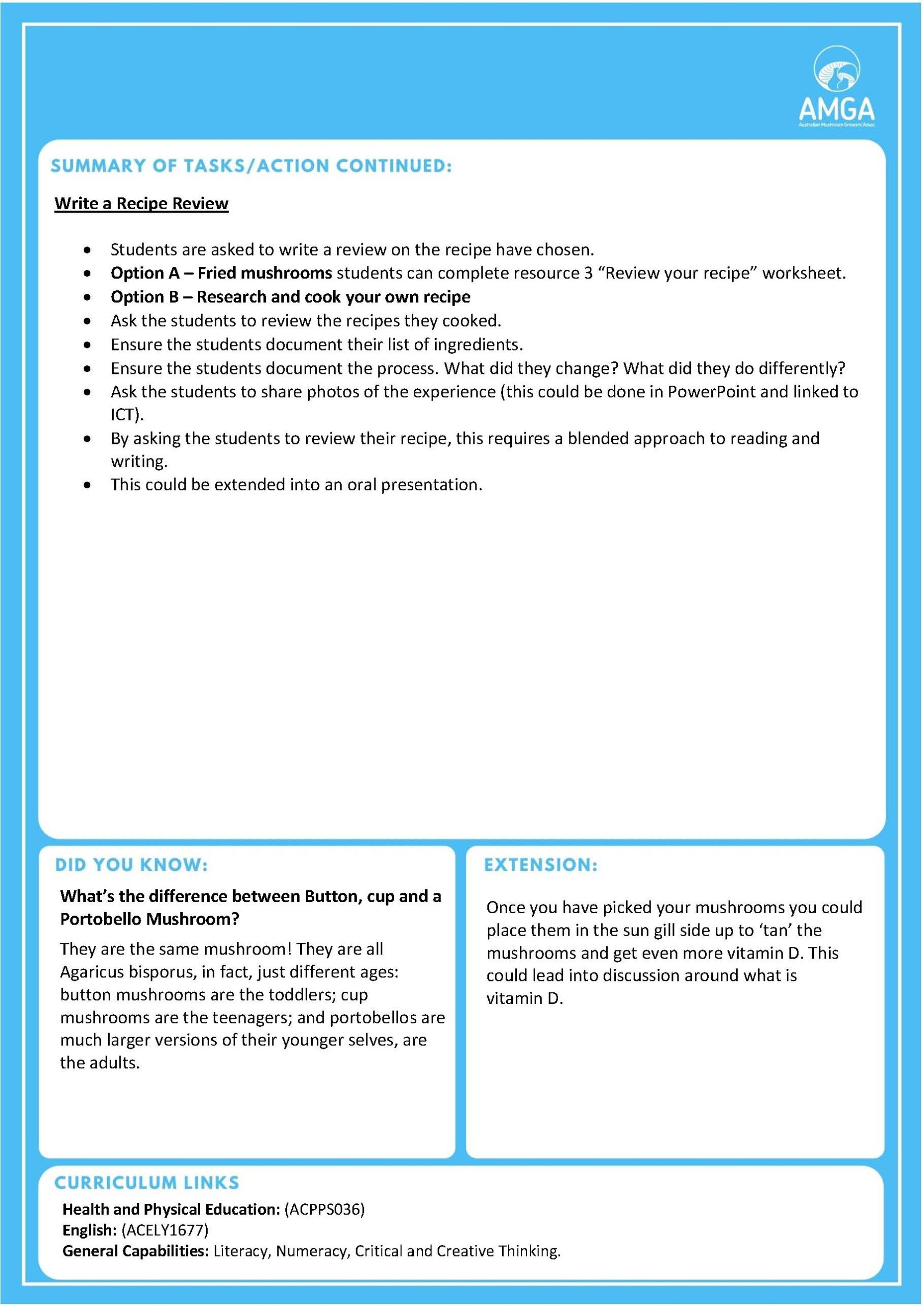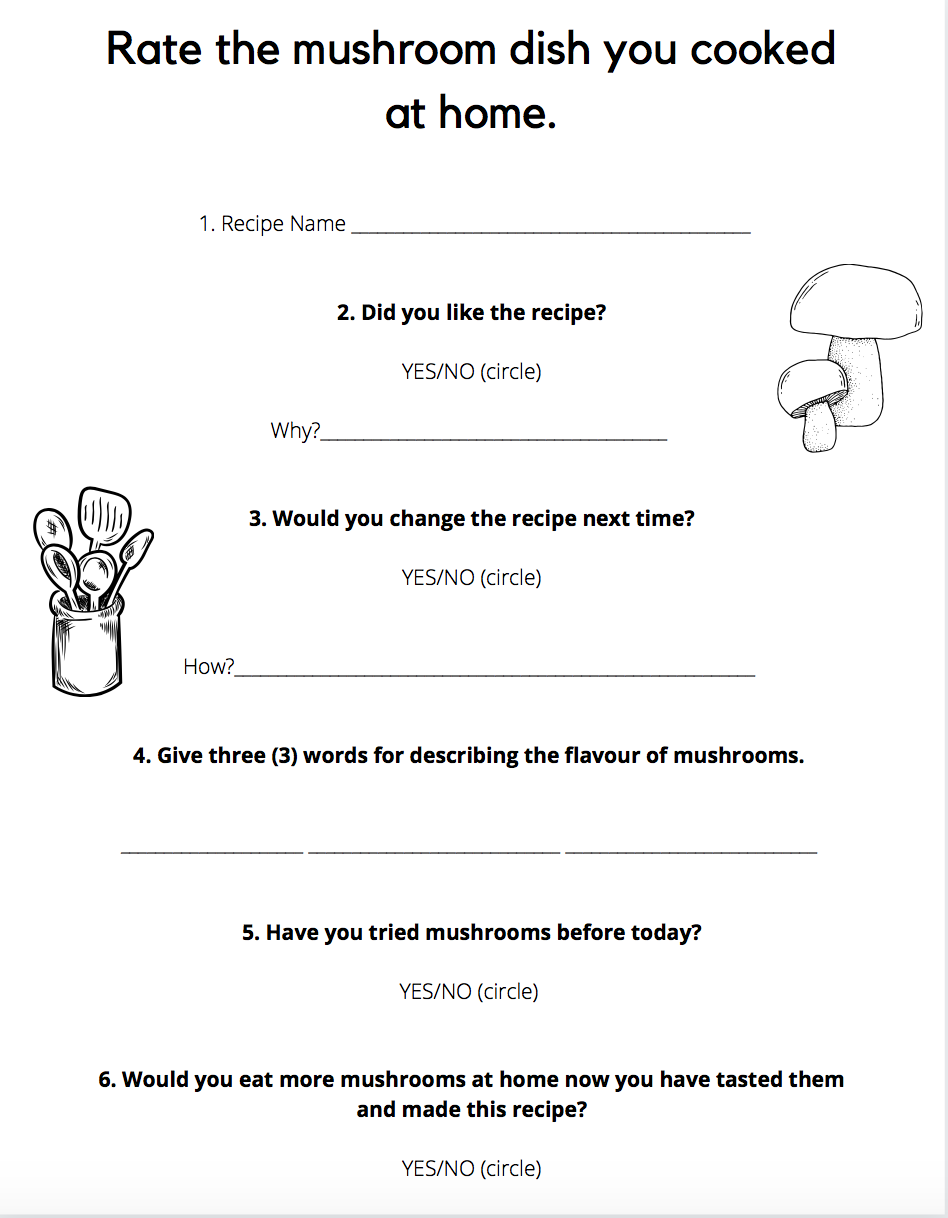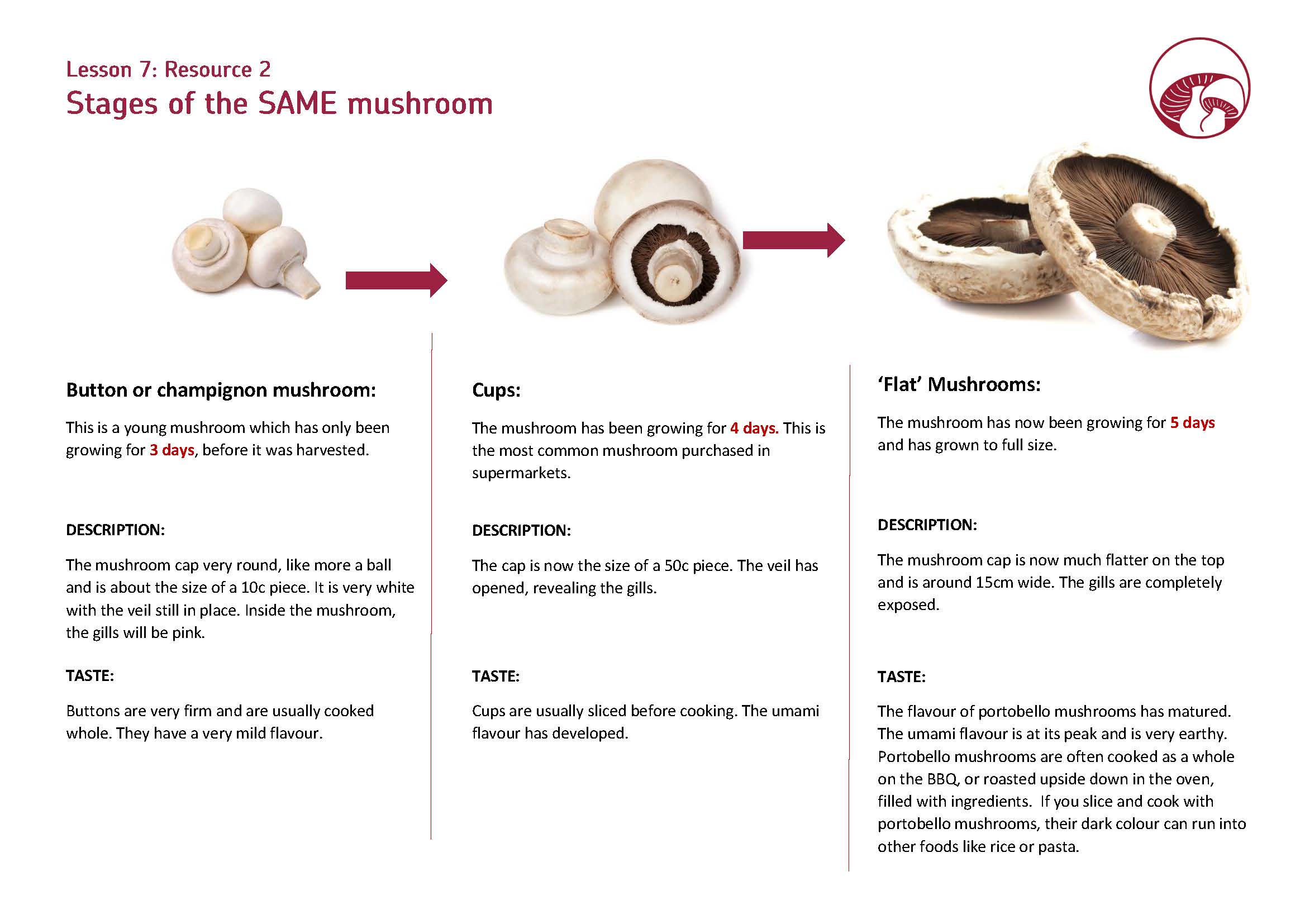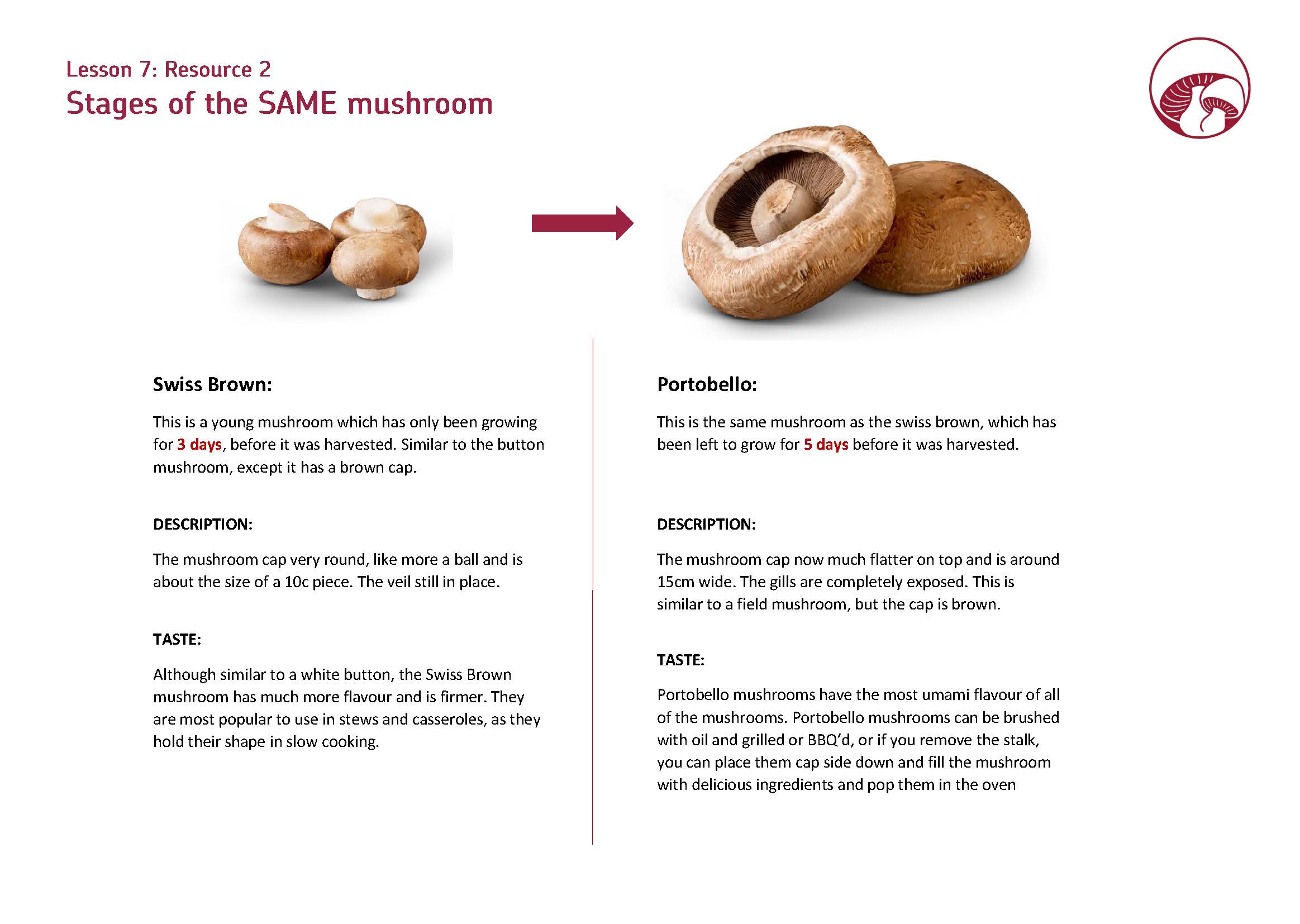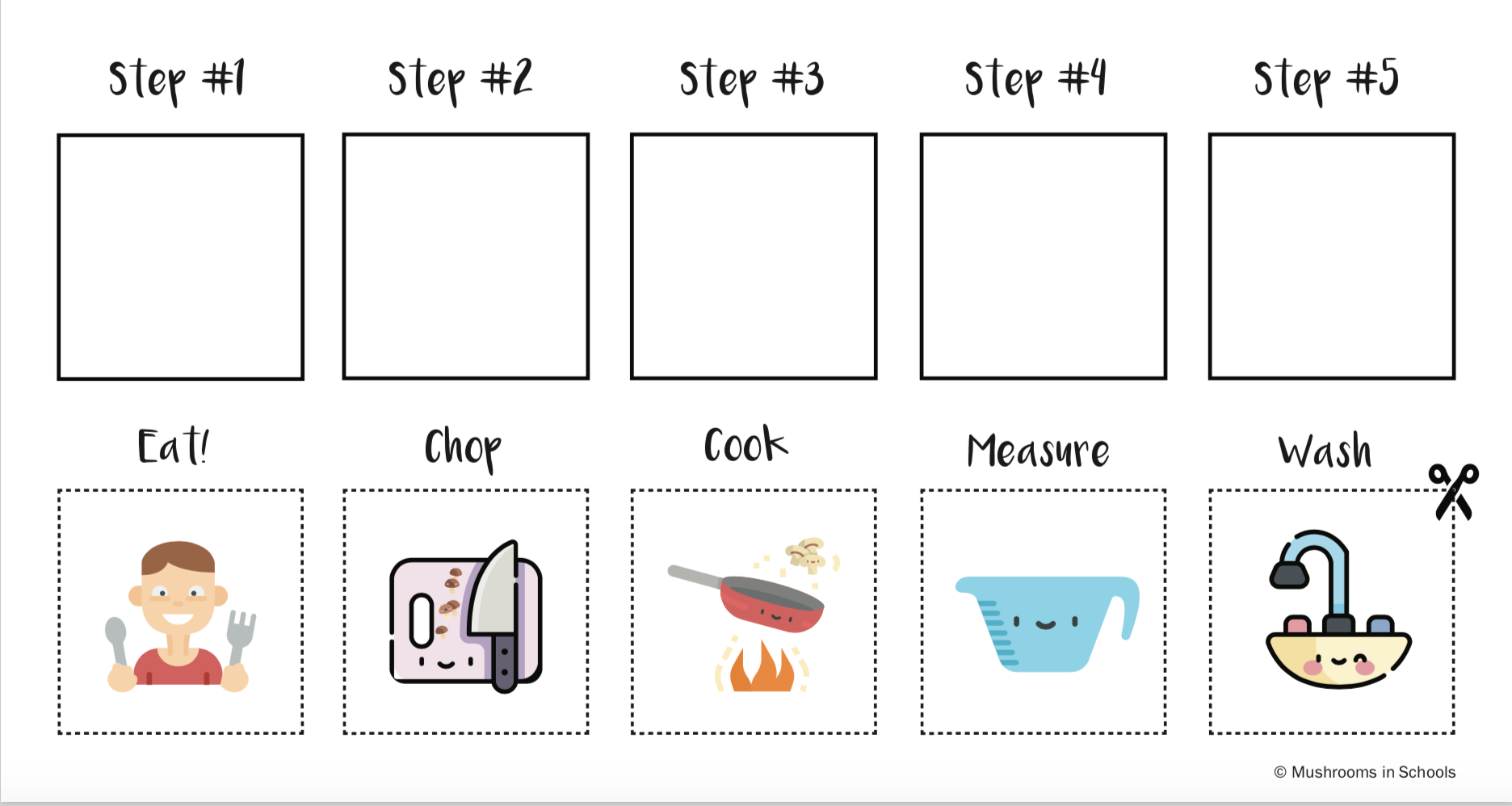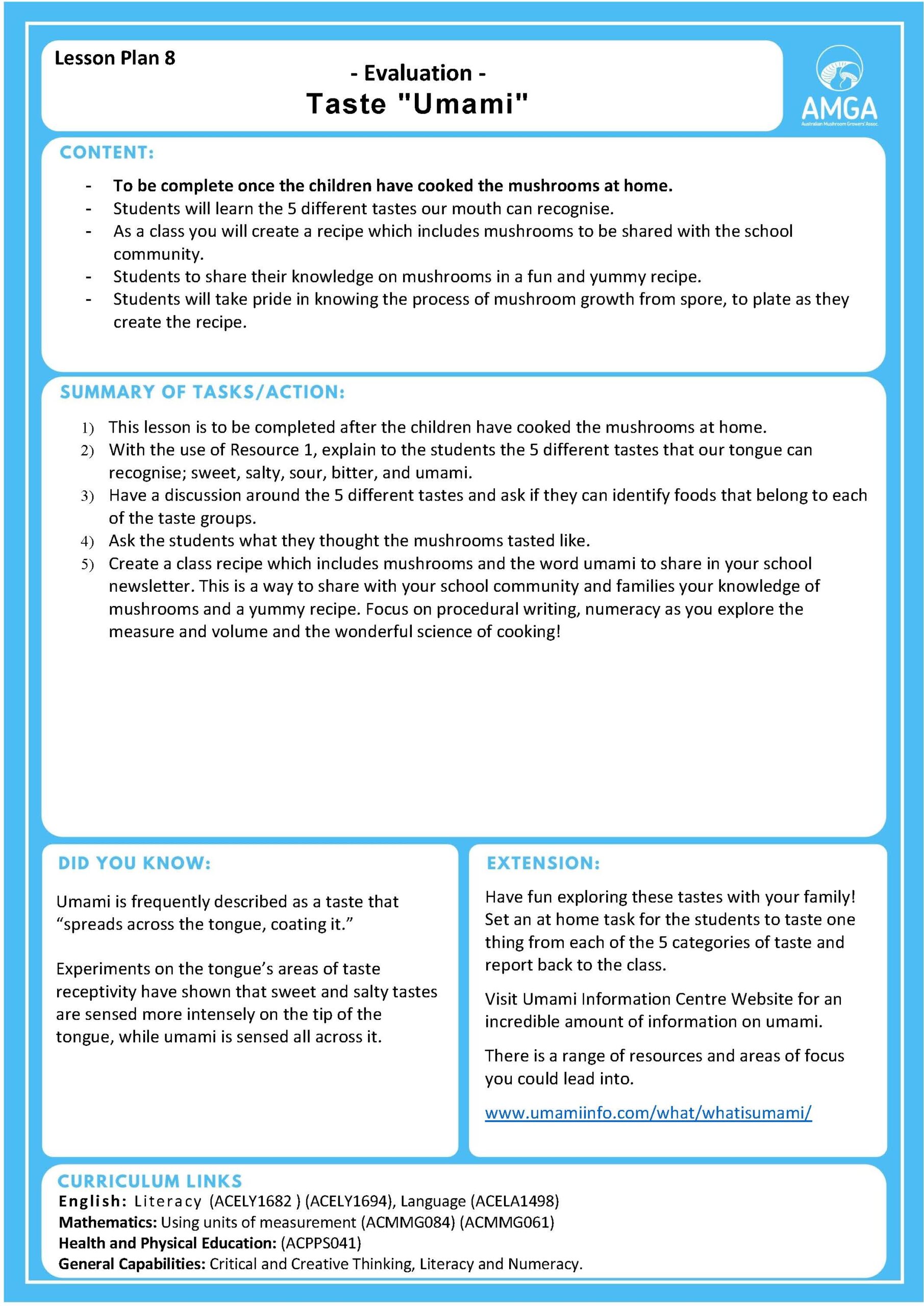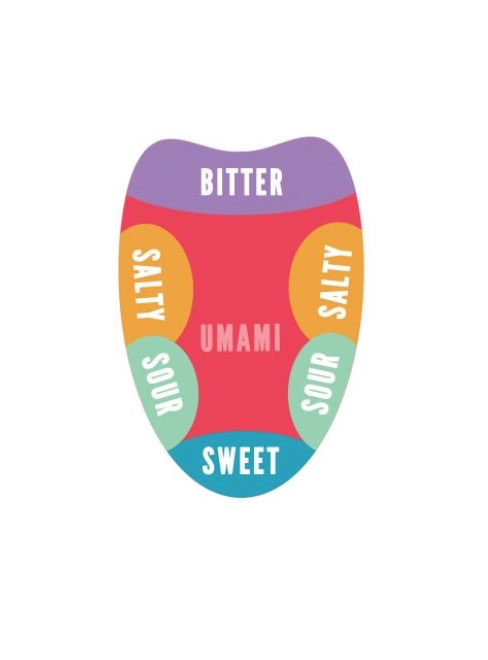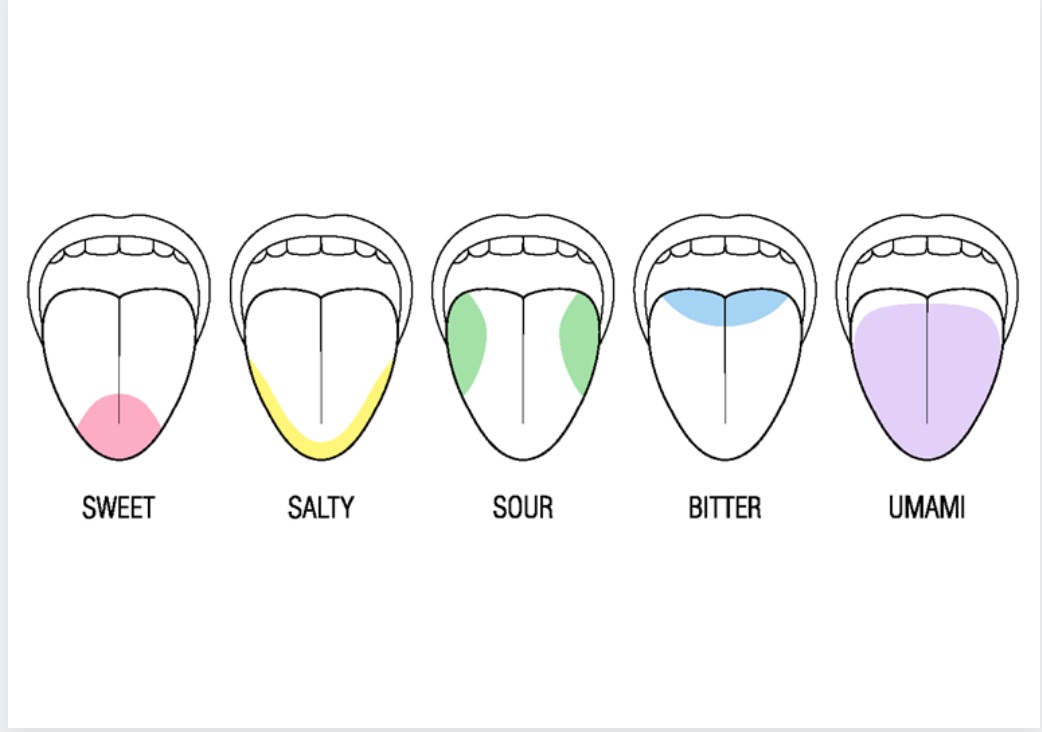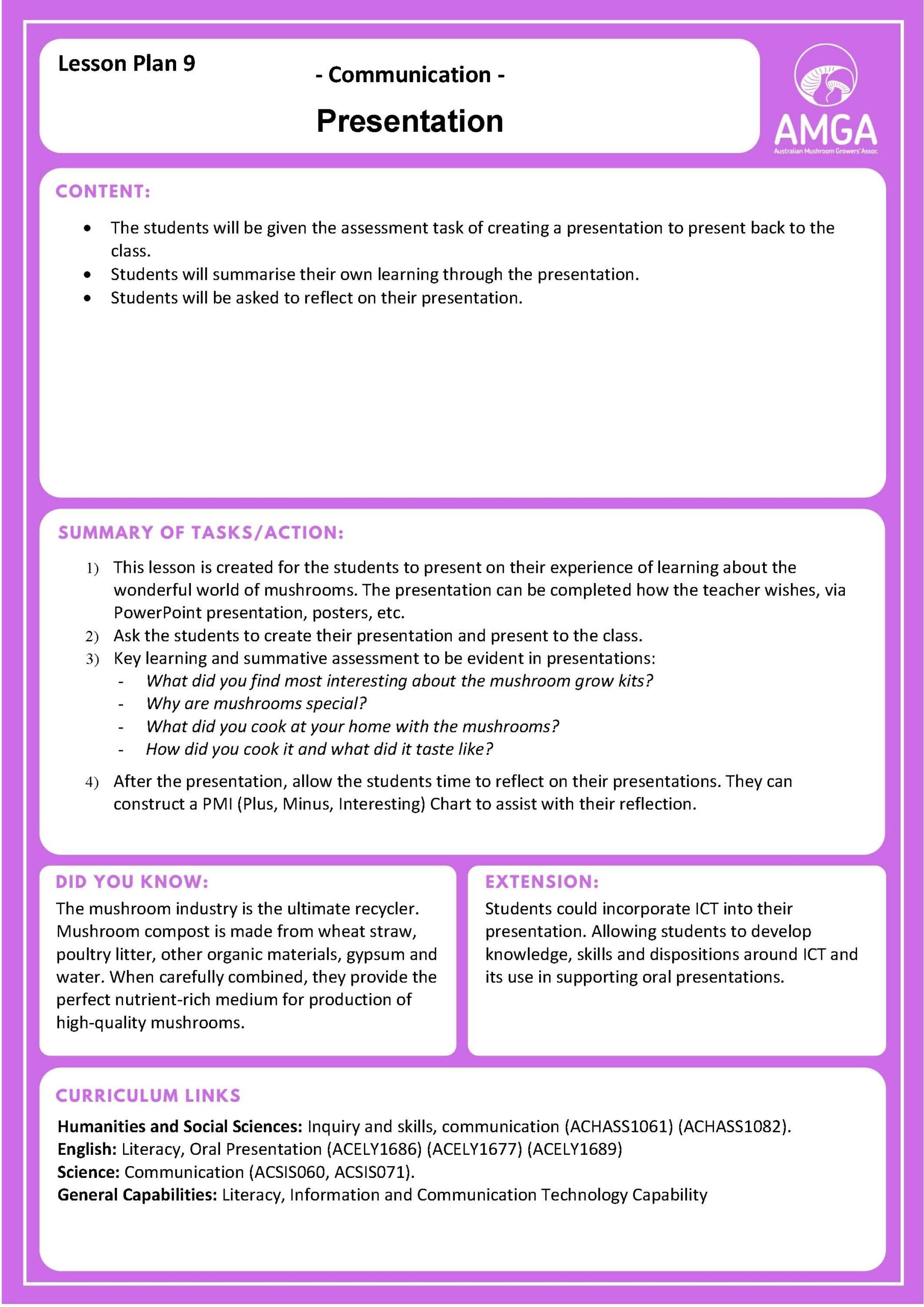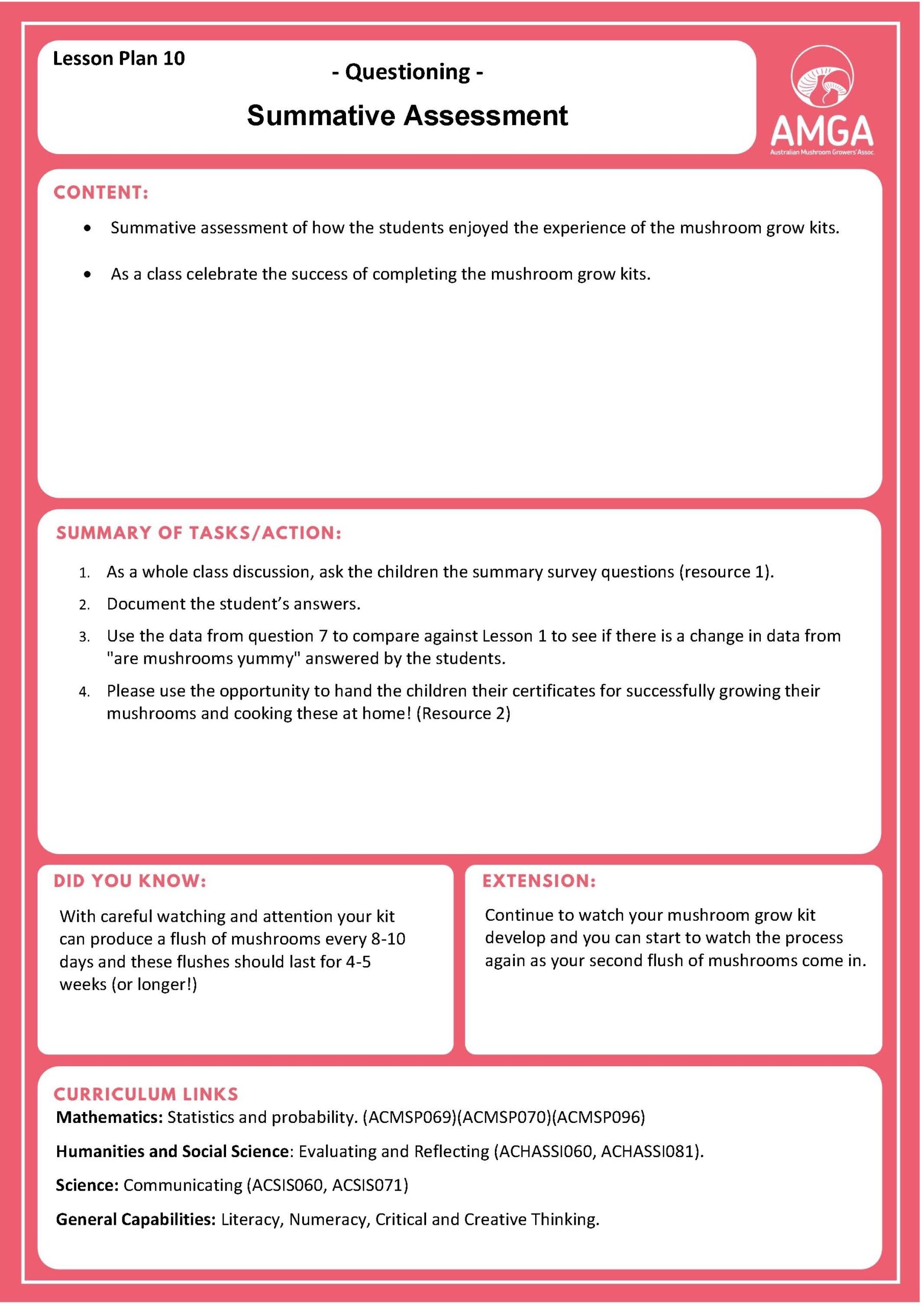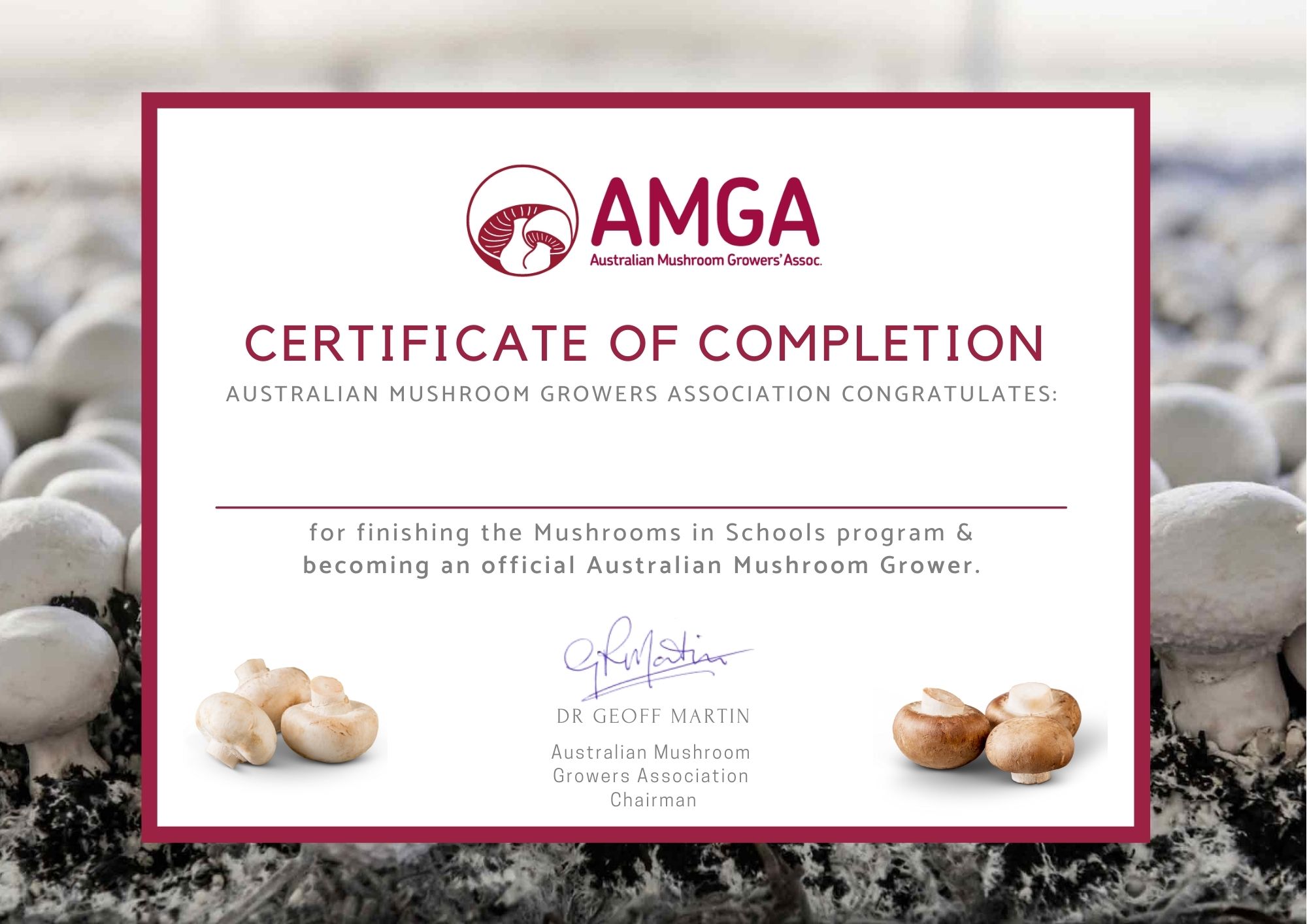Free lesson plans for Primary Schools:
The AMGA has created 10 weeks of professional lesson plans, enough for a full school term. Linked to the Australian Curriculum, these lesson plans are suitable for year 3 and 4 classrooms throughout Australia and encourage hands-on, enquiry based learning and team work. The lesson plans, supporting resources and worksheets cover a variety of subjects including Mathematics, Science, Humanities and Social Science and more.
The lesson plans are free for you to download and use anytime, however if you wish to receive FREE mushroom kits for your class, please register your interest for the Mushrooms in Schools program to be alerted when applications are available for free kits.
For more useful resources and videos, make sure you check out our Mushroom Library too!

10 Free Lesson Plans
Click the links below to jump to the lesson plans
You can download individual lesson plans, or you can download them all using the button below.
Before you click the 'download all' button, be sure you are on a PC and connected to WIFI.. we have prepared a lot of resources for you!
Lesson 1 - How to use your mushroom kit
In Lesson 1 your students will learn how to assemble and care for their Mushroom Kits, learn how to identify the most common Australian grown mushrooms. This lesson prompts the students to share their current understanding of mushrooms, to guide the lessons that follow. This lesson pack includes very useful resources; how to set up teams, a high resolution poster, a mushroom growth monitor chart and more. (NOTE: This is a compulsory lesson for the Mushrooms in Schools program.)
Lesson 2 - Facts about Mushrooms
This lesson teaches students some interesting facts about mushrooms. Students will learn to identify the parts of the mushroom, which is reinforced with fun projects such as a mushroom quiz. Students are encouraged to create their own information booklet, to record all fun facts they learn about mushrooms.
Lesson 3 - History of Mushrooms
In Lesson 3, your students will learn about the history of mushrooms, from ancient times of kings and pharaohs to now. This lesson includes an interesting video tour of Li Sun Exotic Mushrooms, where Dr Noel Arrold shows you through his exotic mushroom farm - which is inside a former 19th century train tunnel and World War II explosives storing facility.
Lesson 4 - How Mushrooms Grow - Modern Farming Methods
Lesson 4 teaches your students how mushrooms grow in the 21st century, as you take a look at two very different farming methods, commercial farming of button mushrooms and farming of exotic mushrooms. Students are encouraged to write a Haiku, using their new mushroom knowledge. This lesson and its resources are very useful to lead into Lesson 5.
Lesson 5 - Compost and Mushroom Life cycle
In Lesson 5, your students will learn why mushrooms are very different to vegetables! Fungi grow in a very unique way - within the compost, the mycelium grows as the web like hyphae connect, and as a result the mushroom fruits. Students will learn about sustainable commercial farming methods and how this compares to the way mushrooms grow in the wild.
Your students will also learn all about mycelium and how scientists are developing ways to use it to replace wood and bricks to build houses, leather for sustainable fashion and even rocket ships!
Lesson 6 - Mushroom Nutrition
In Lesson 6, students will learn what makes mushrooms so mighty, and why mushrooms are considered the "meat" in many vegetarian cuisines around the world. Students are invited to make a mushroom puzzle, to share their new knowledge of why mushrooms are called a "Super Food."
Lesson 7 - Harvesting and Cooking Mushrooms
This is a very important lesson in the program, as it teaches students to understand the stages of mushroom growth and when the mushrooms are ready to be harvested, the correct way to harvest their mushrooms (Don't pull! TWIST the mushroom gently!) and how to care for the kit to ensure your kit produces not just one flush of mushrooms... but four or FIVE!
Your students are encouraged to research recipes they will enjoy to eat, how to follow procedures to properly prepare the mushrooms and invites the students to present a mushroom recipe review. (NOTE: This lesson is compulsory in the Mushrooms in Schools program)
Lesson 8 - Umami, the fifth taste!
In this lesson, your students are asked to consider flavours. Mushrooms are described as having an "umami" flavour, but how does it taste? Students will learn about the anatomy of the human tongue and which parts taste which flavor.
Lesson 9 - Create a report on what you have learned
Lesson 9 invites the students to create and present a report on their experience of learning about the wonderful world of mushrooms. Presentations can be completed via essay, PowerPoint or even video. (We would love to see these reports to understand what the students have learned, so please feel free to share them - anonymously of course!)
Lesson 10 - Class discussion and final student survey
In this final lesson, we invite the class to discuss as a group what they have learned about mushrooms and what they now wonder about mushrooms. It is fascinating to witness students curiosity of mushrooms grow!
(NOTE: This is a compulsory lesson in the Mushrooms in Schools program, as it contains a final student survey and teacher feedback survey)
Have your students completed the Mushrooms in Schools Program?
Reward your students for completing the Mushrooms in Schools program, with a certificate of completion - signed by our Australian Mushroom Growers Association Chairman, Dr. Geoff Martin.
Click the button below to download a printable certificate of completion for you to handwrite each students name.
Congratulations to our newest Australian Mushroom Growers!

